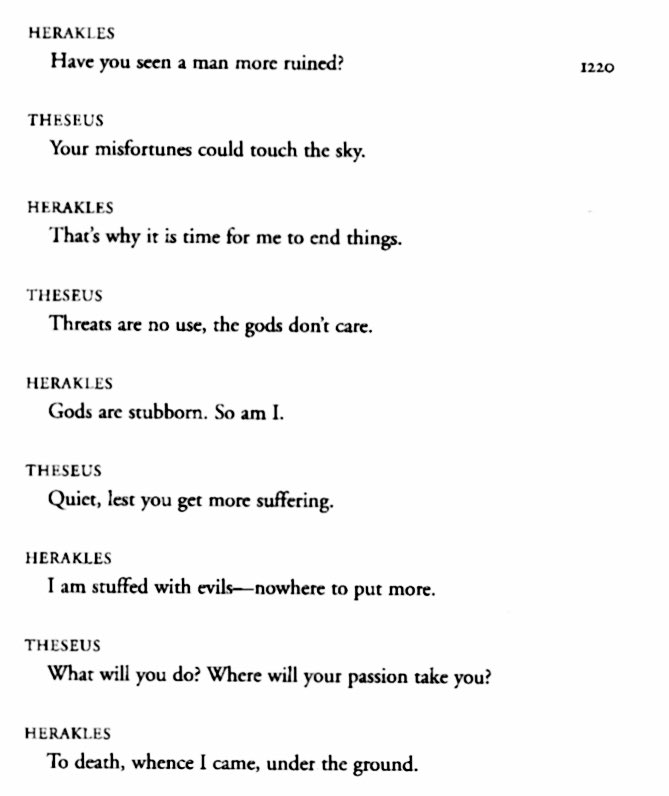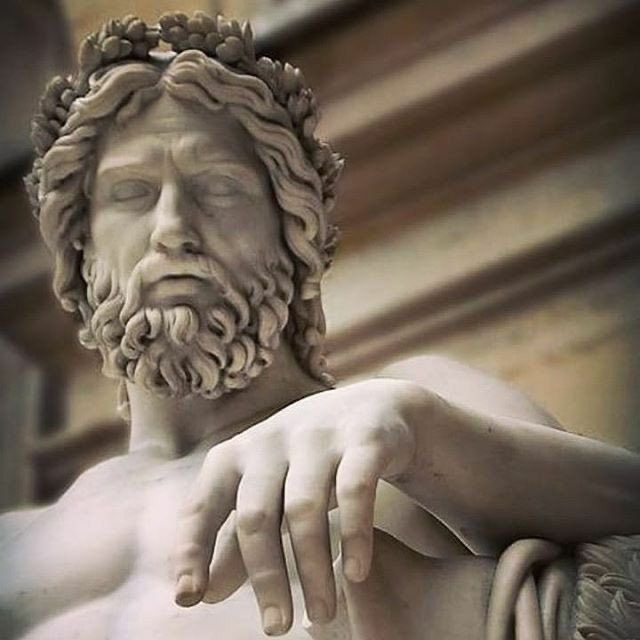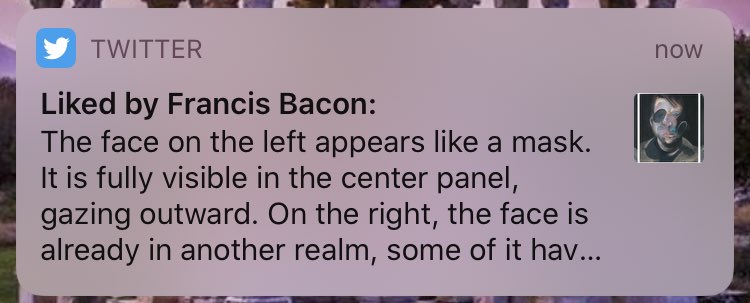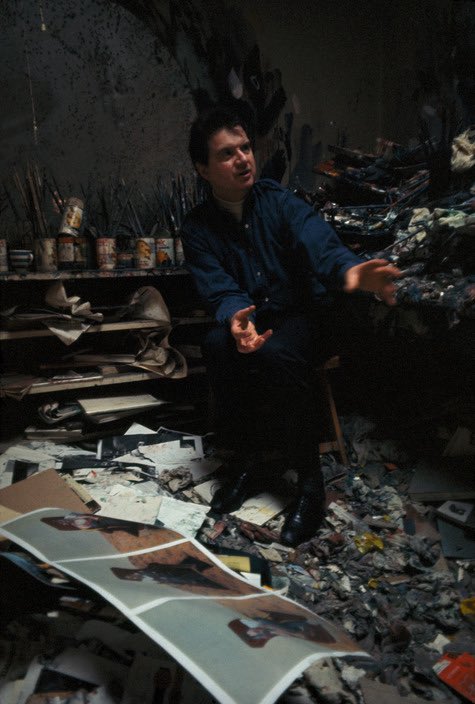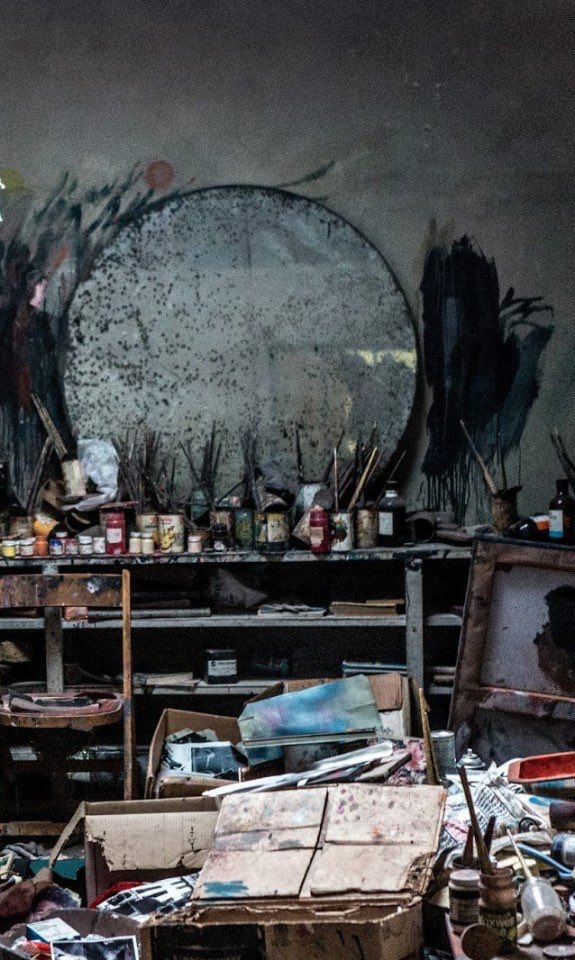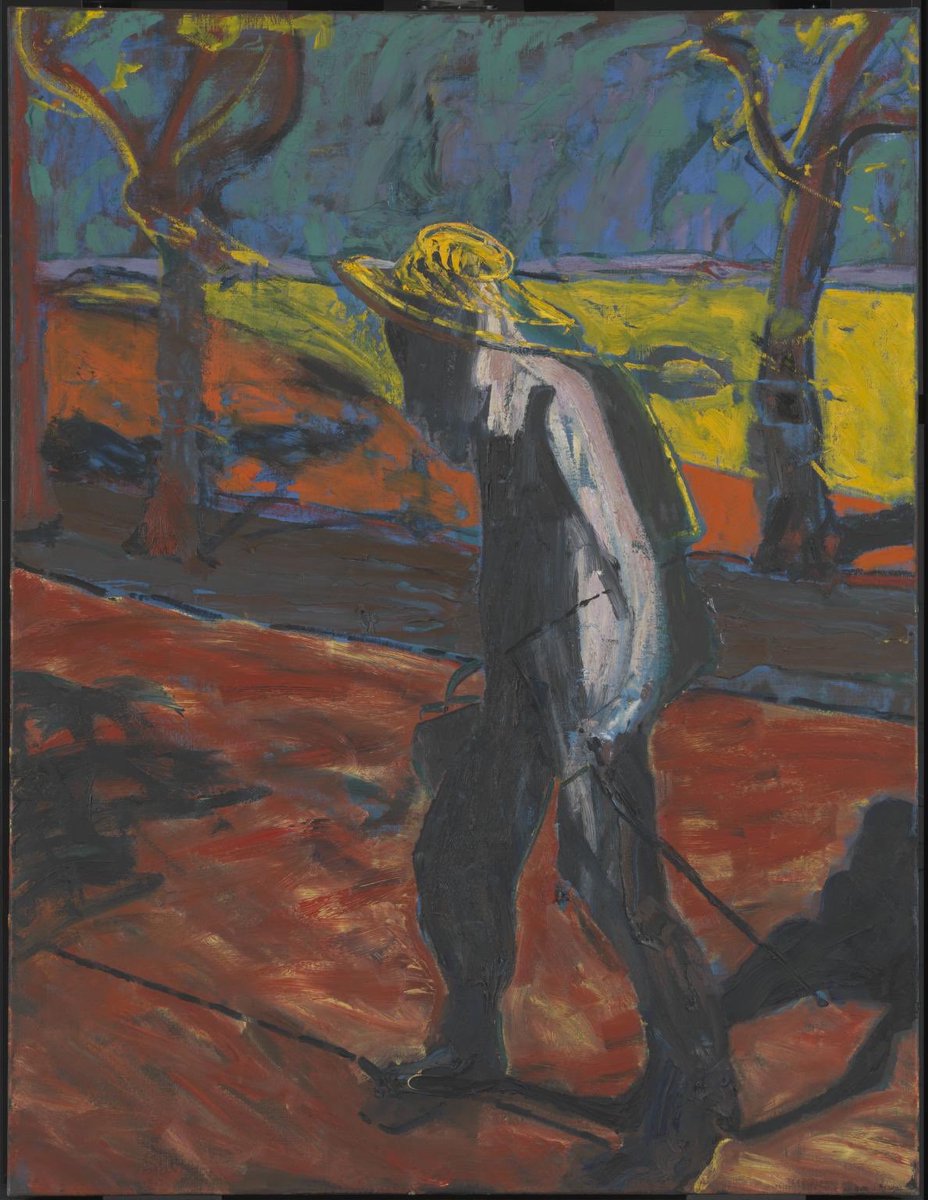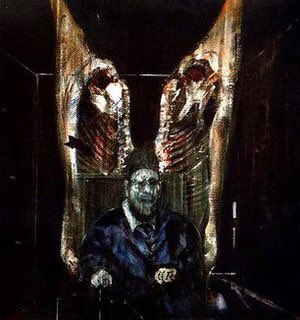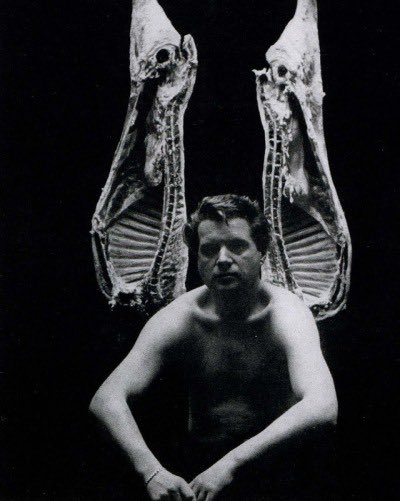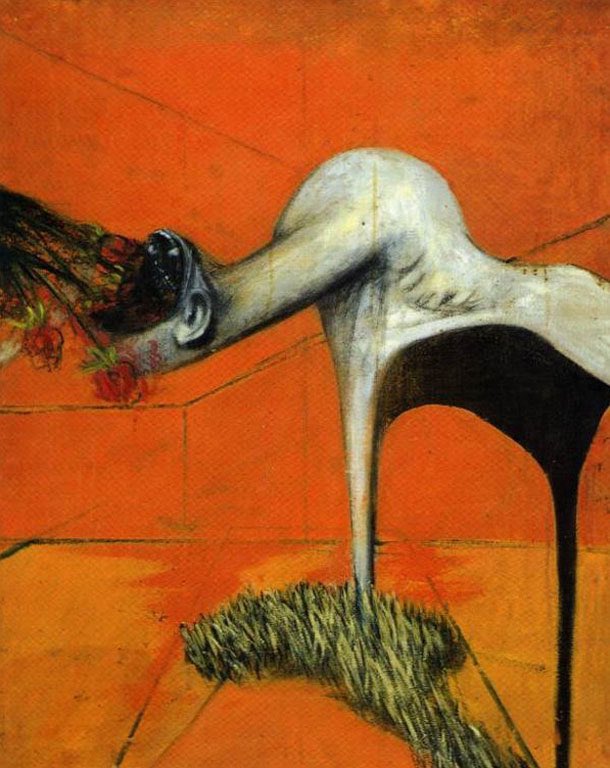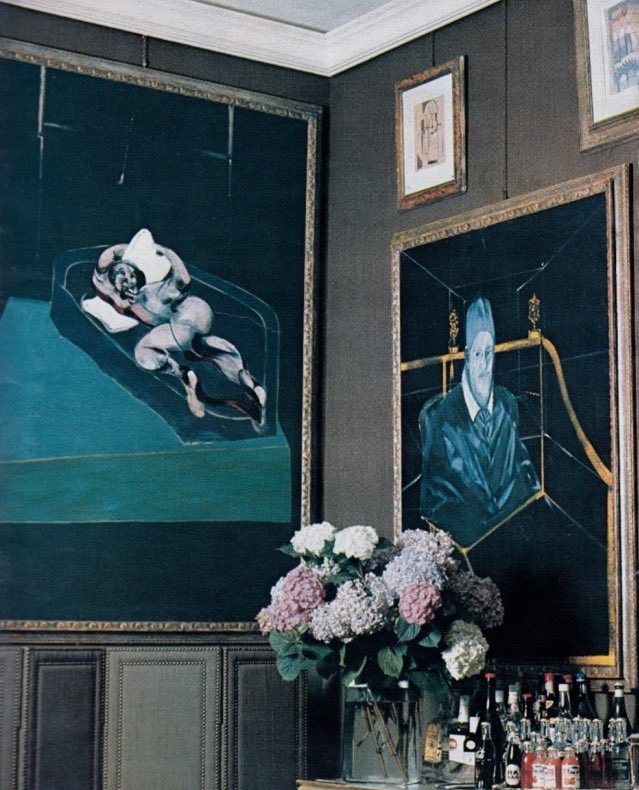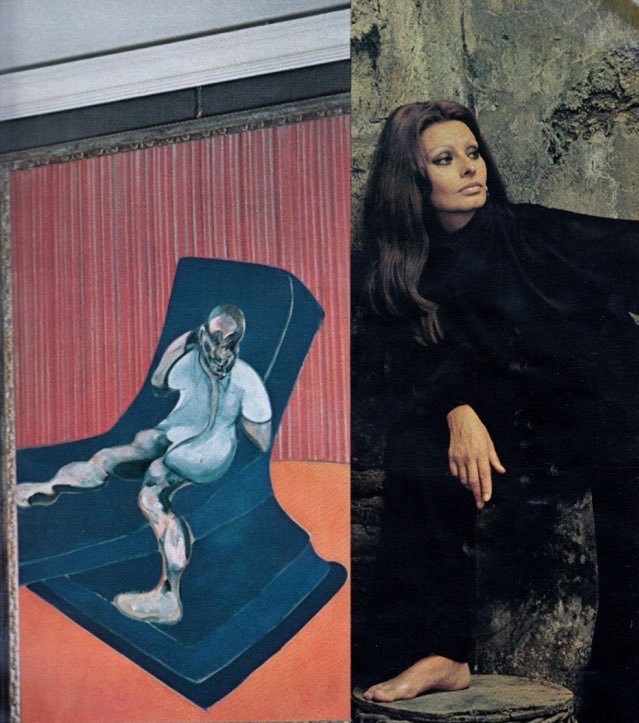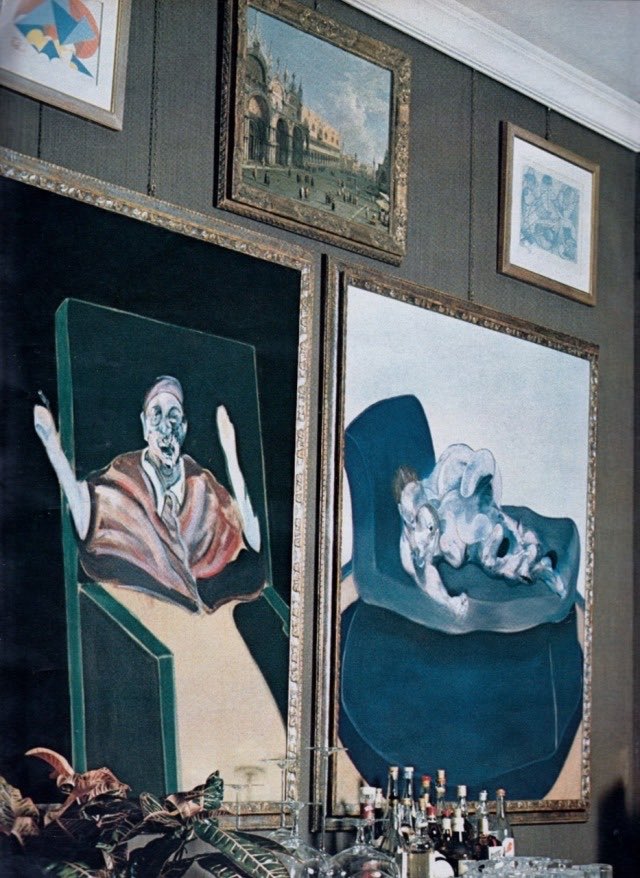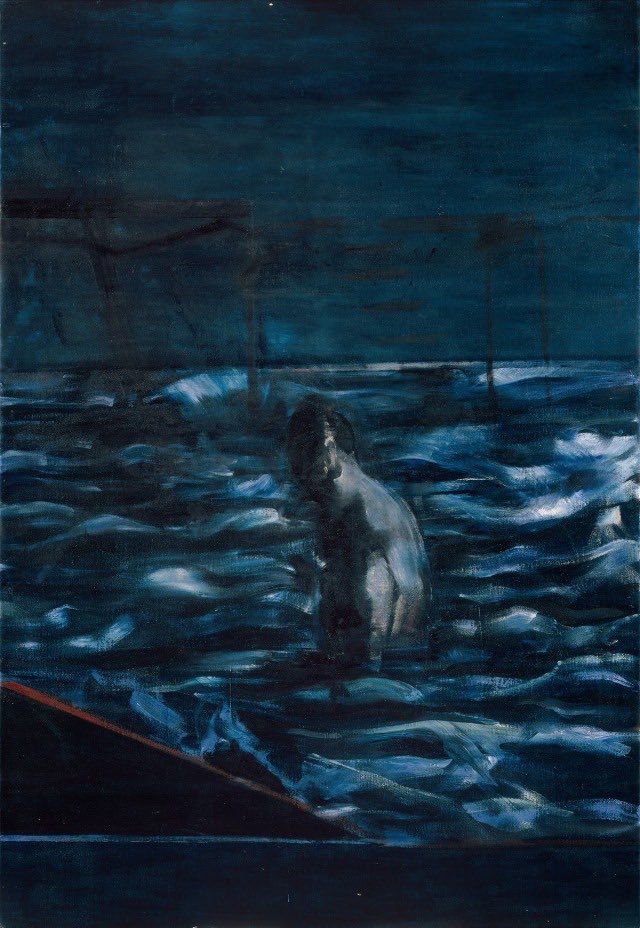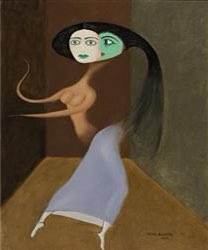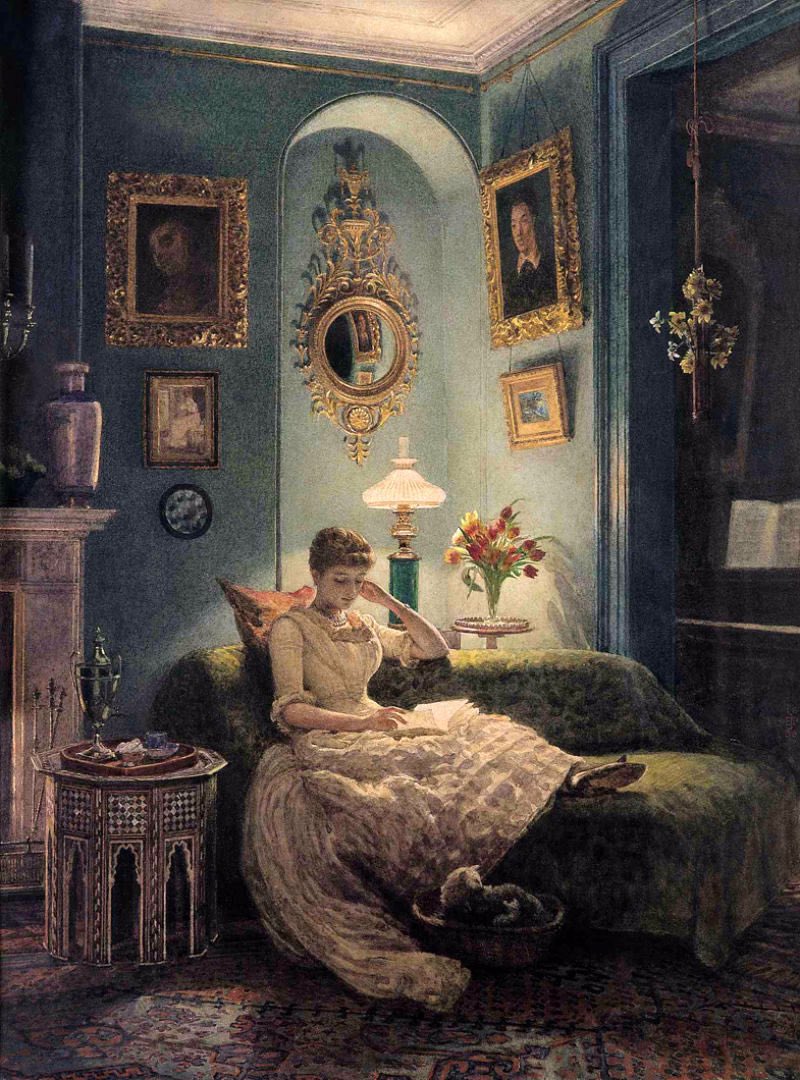
"I, for one, am looking forward to absorbing myself in antiquity because I am so deeply tired of the modern world." — Livy
Classical world chillin’ today



Classical world chillin’ today




What were the Greek ships on fire
compared to this loss?
In his tent, Achilles
grieved with his whole being
and the gods saw
he was a man already dead, a victim
of the part that loved,
the part that was mortal.
fr. The Triumph if Achilles by Louise Gluck
compared to this loss?
In his tent, Achilles
grieved with his whole being
and the gods saw
he was a man already dead, a victim
of the part that loved,
the part that was mortal.
fr. The Triumph if Achilles by Louise Gluck

And first I will tell you of my misfortunes,
Of all that I suffered—and by going through those sufferings
I obtained deathless virtue, as you can see.
And you, know it well, must endure all this,
To create a glorious life from your pain.
(fr. nybooks.com/articles/2015/…)
Of all that I suffered—and by going through those sufferings
I obtained deathless virtue, as you can see.
And you, know it well, must endure all this,
To create a glorious life from your pain.
(fr. nybooks.com/articles/2015/…)
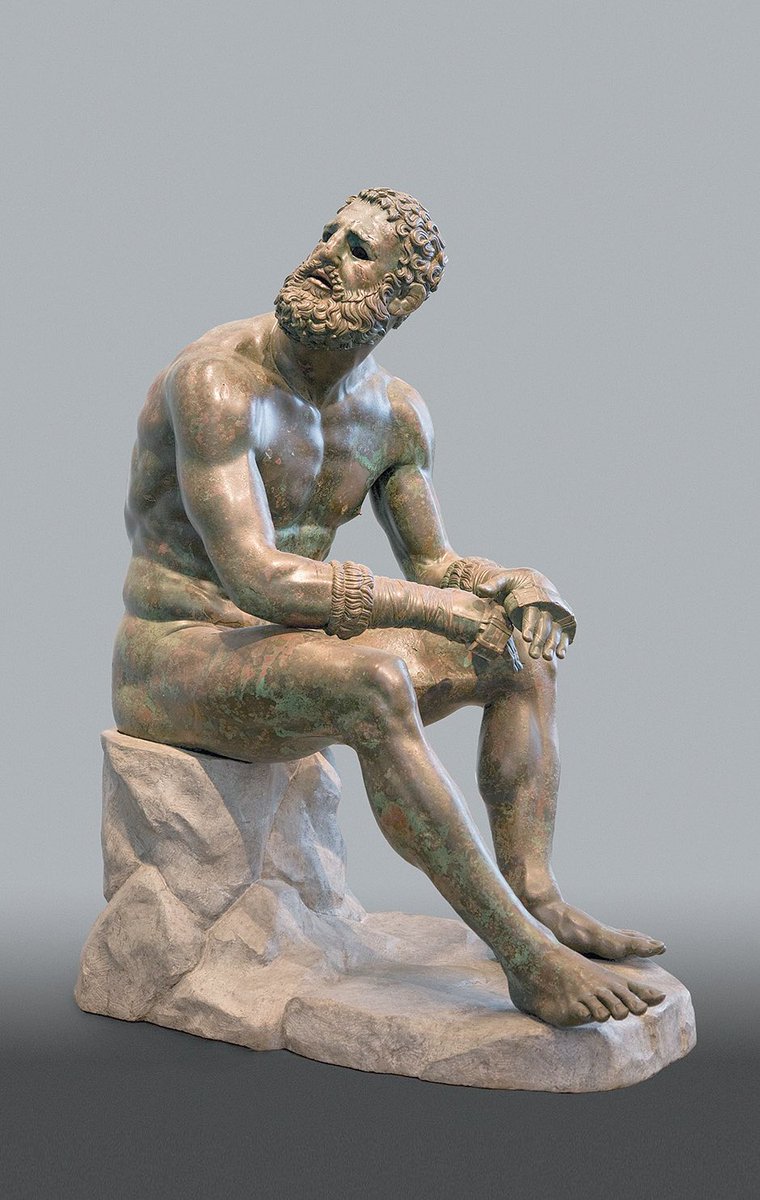
“there’s no such thing as life, it’s just catastrophe”
fr. Grief Lessons: Four Plays by Euripides
translated by Anne Carson

fr. Grief Lessons: Four Plays by Euripides
translated by Anne Carson
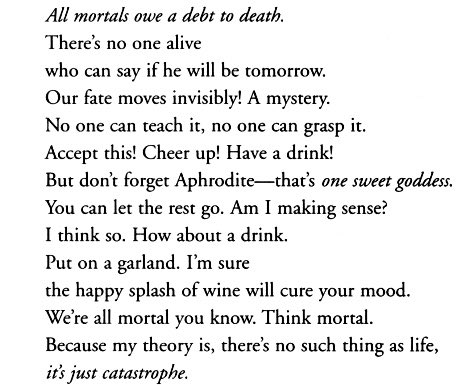
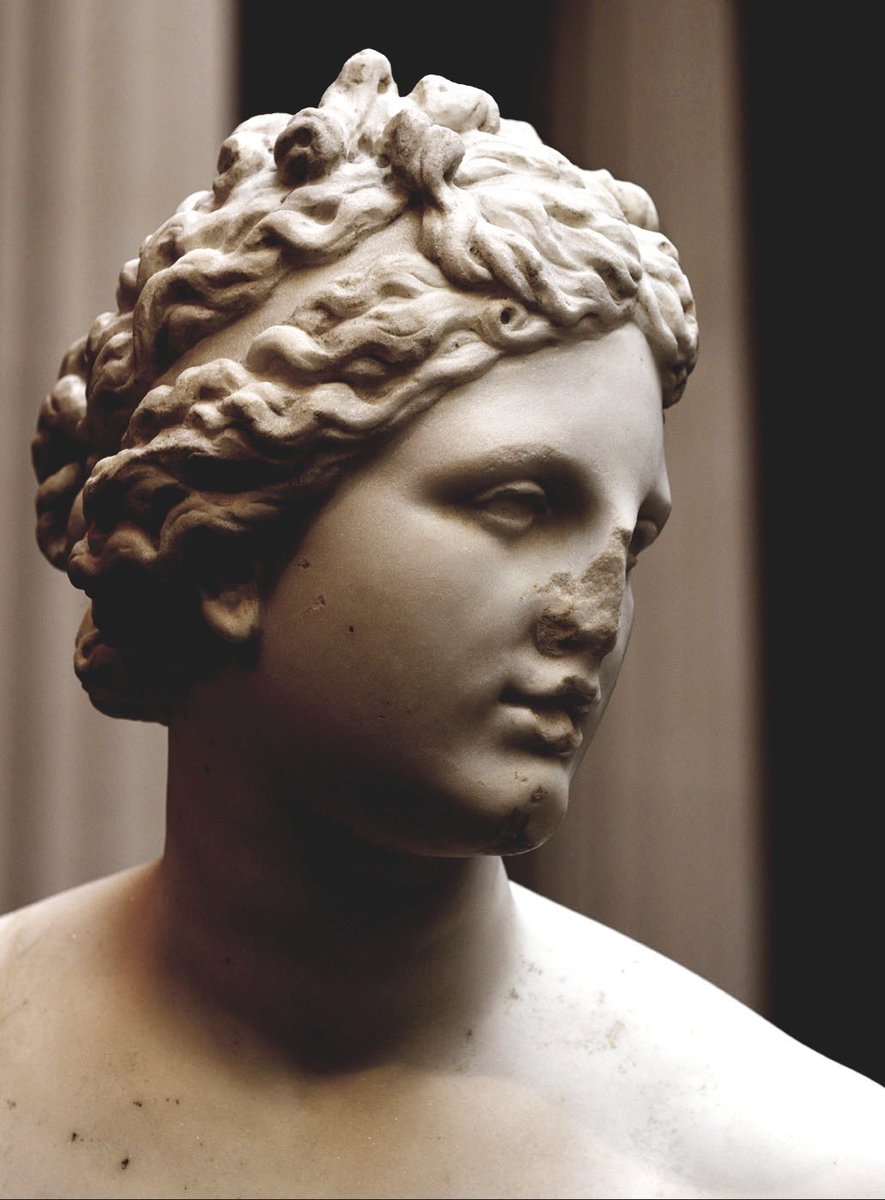
“If life is a stage, that is the show. Exit Dionysos.”
fr. Bakkhai by Euripides
translated by Anne Carson

fr. Bakkhai by Euripides
translated by Anne Carson
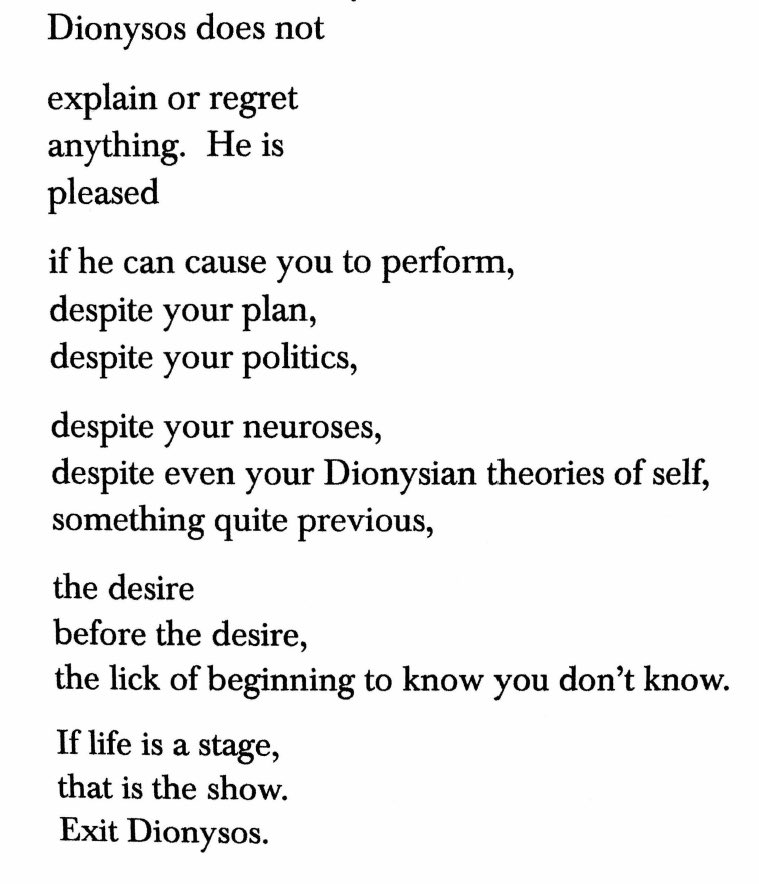
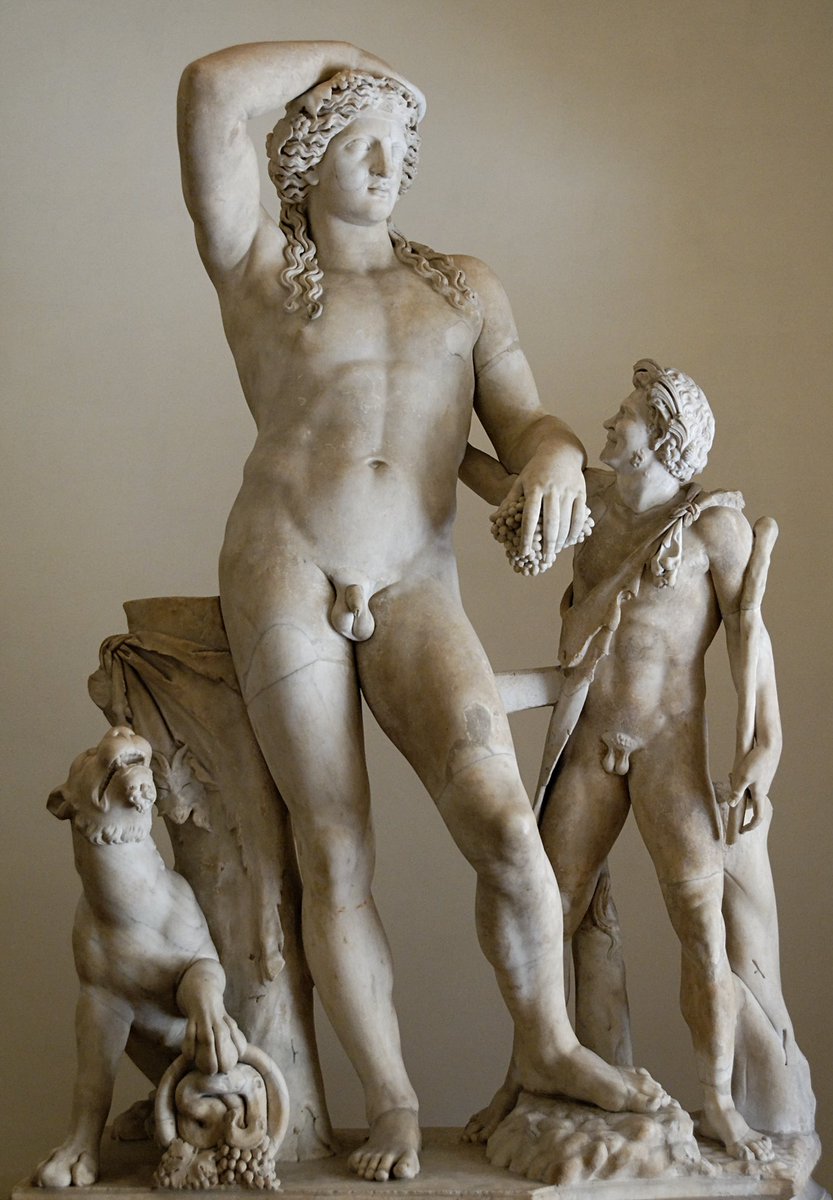
Triptych Inspired by the Oresteia of Aeschylus, by Francis Bacon
“I’ll tell you what I really read: things which bring up images for me. And I find that this happens very much with Aeschylus. It opens up the valves of sensation for me.” —FB
More here: afmuseet.no/en/work/2169
“I’ll tell you what I really read: things which bring up images for me. And I find that this happens very much with Aeschylus. It opens up the valves of sensation for me.” —FB
More here: afmuseet.no/en/work/2169
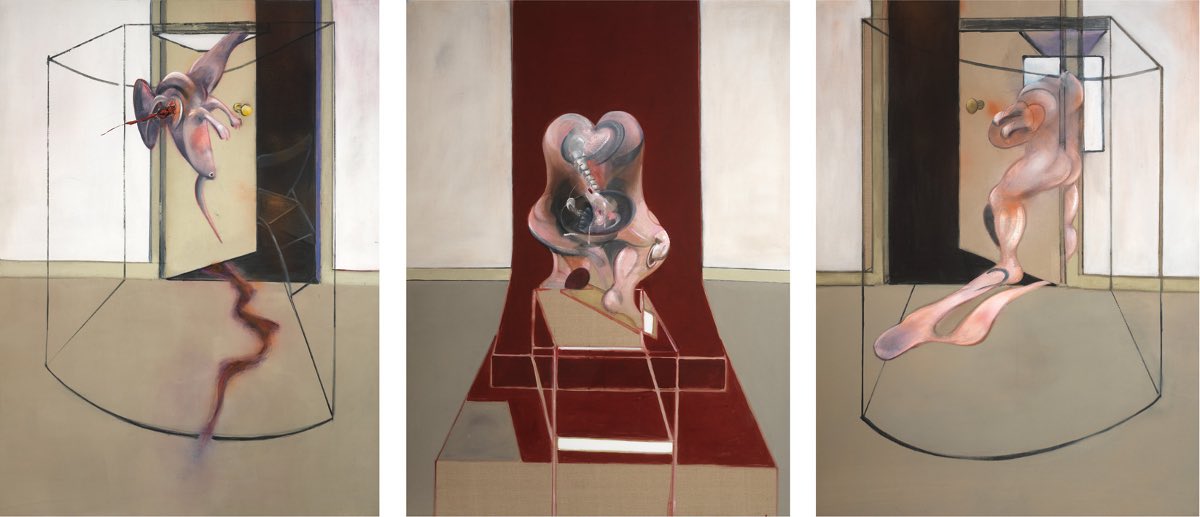
Now I’m thinking about how after he died, Francis Bacon’s chaotic studio was completely recreated in another building for the benefit of posterity. Over 7,000 objects logged and painstakingly transplanted from London to Dublin... 



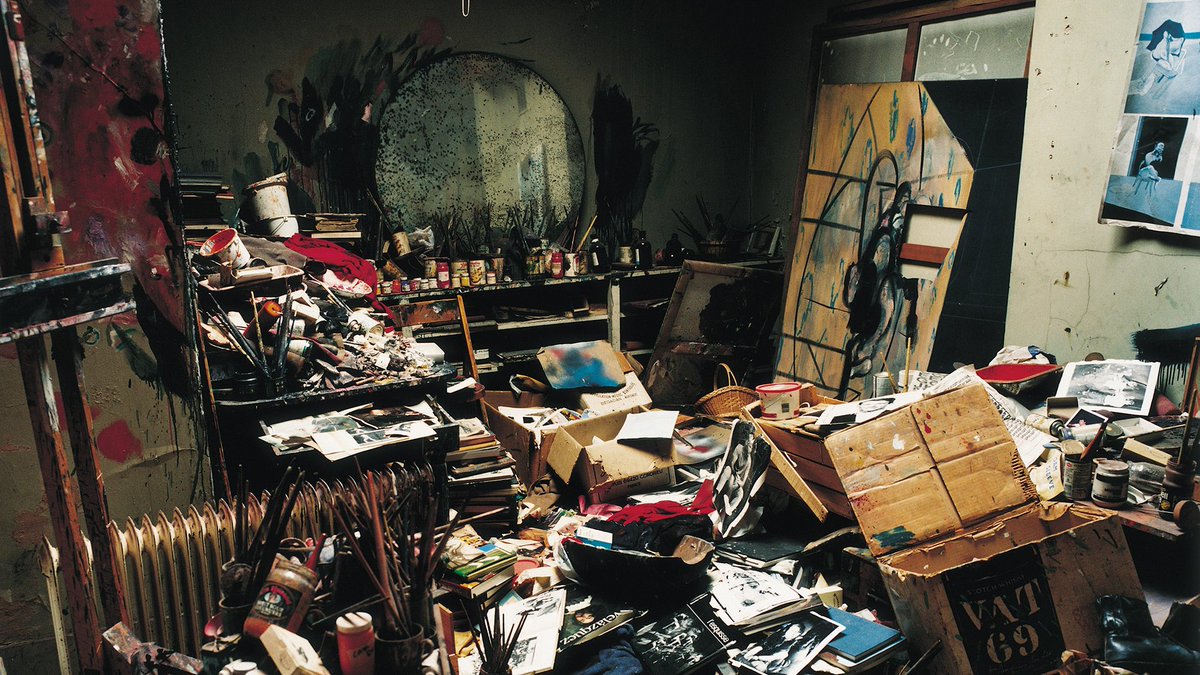
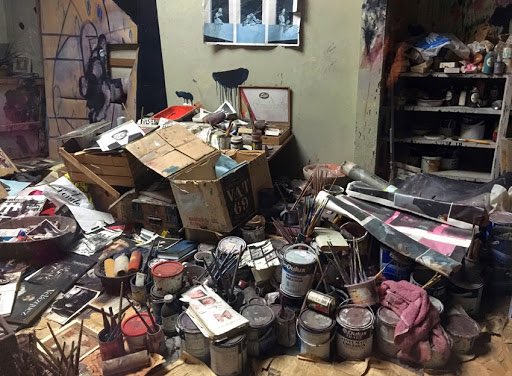
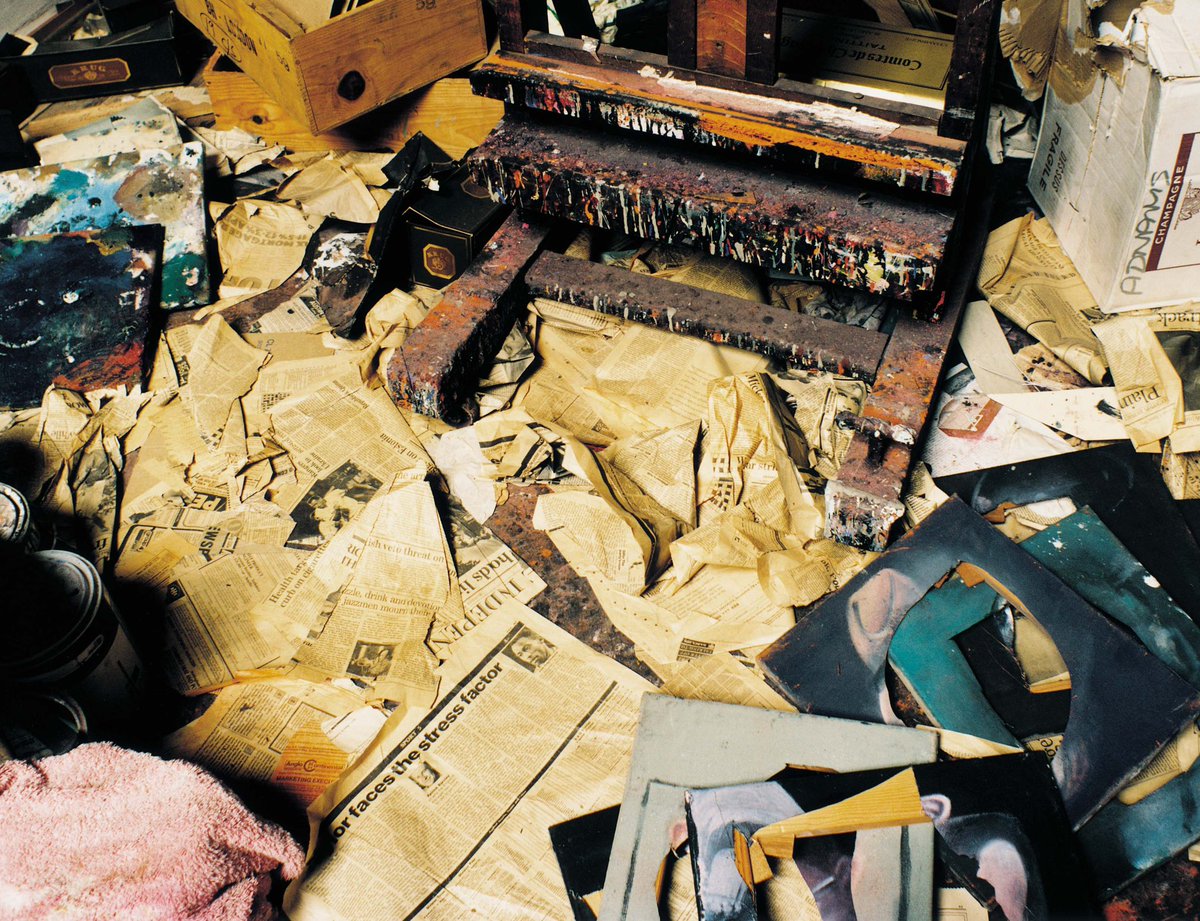
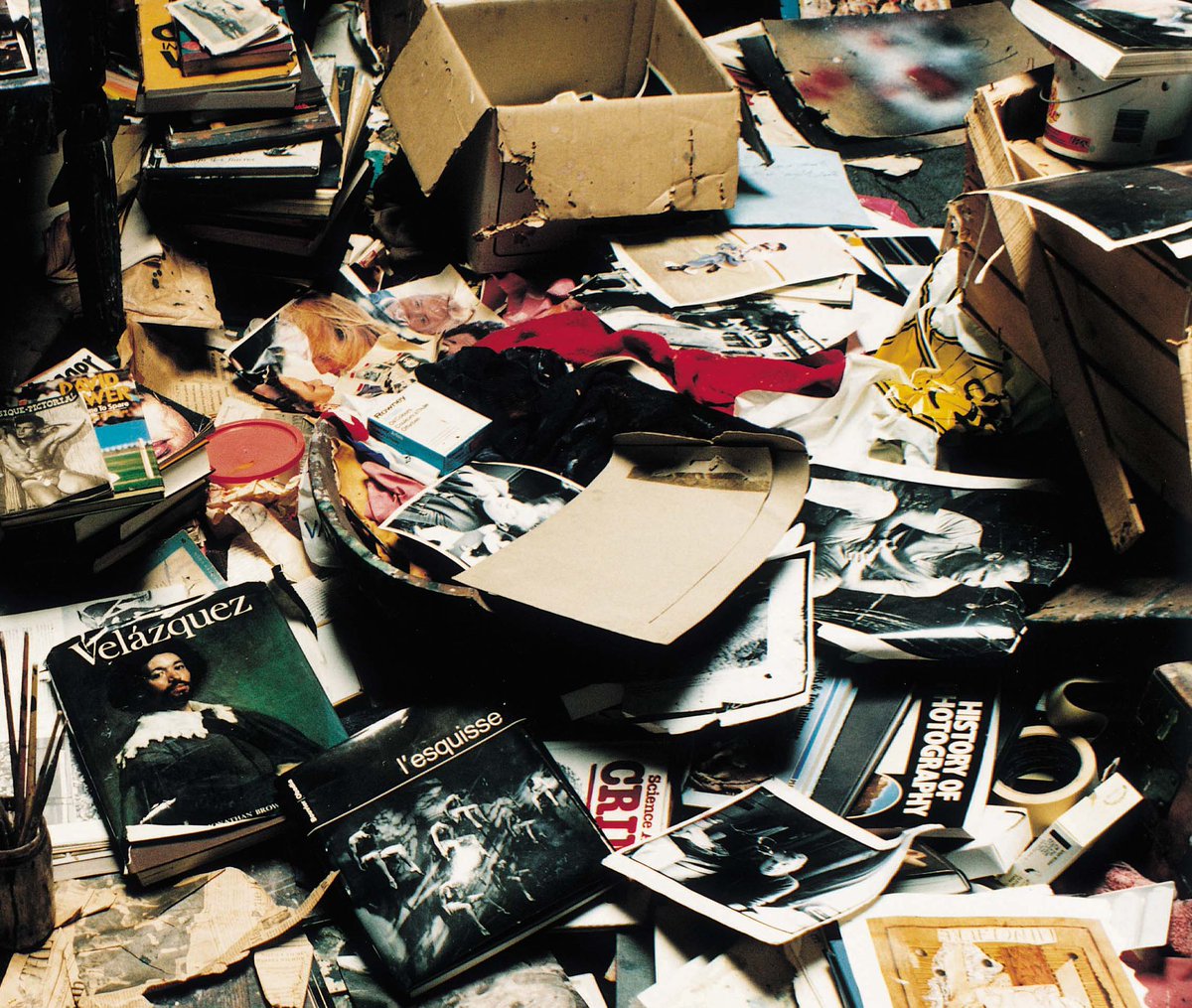
Bacon died in 1992, having had a heart attack en route to Madrid in pursuit of a male lover who had discarded him. They met in 1988 when Bacon was 78 and his companion in his early 30s (appears in left panel below, 1991.) Vehemently atheist, Bacon’s body was left to science. 
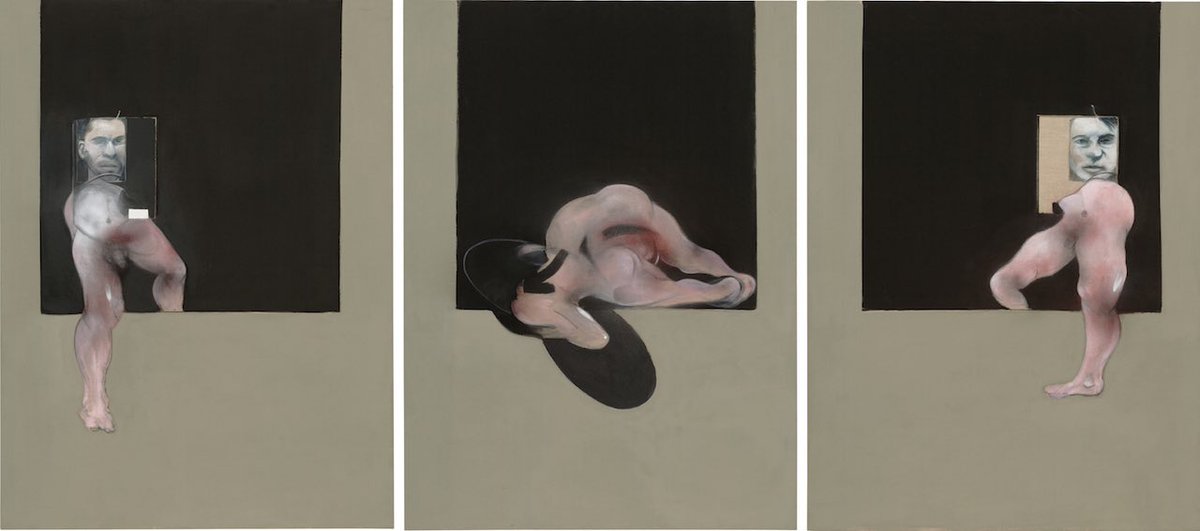
“I would like to make images that bring you closer to what being human is actually like. After all these years, I don’t know whether it’s ever worked.” —Francis Bacon
Isabel Rawsthorne Standing in a Street in Soho, 1967
Studies from the Human Body, 1975
Self Portrait, 1978


Isabel Rawsthorne Standing in a Street in Soho, 1967
Studies from the Human Body, 1975
Self Portrait, 1978
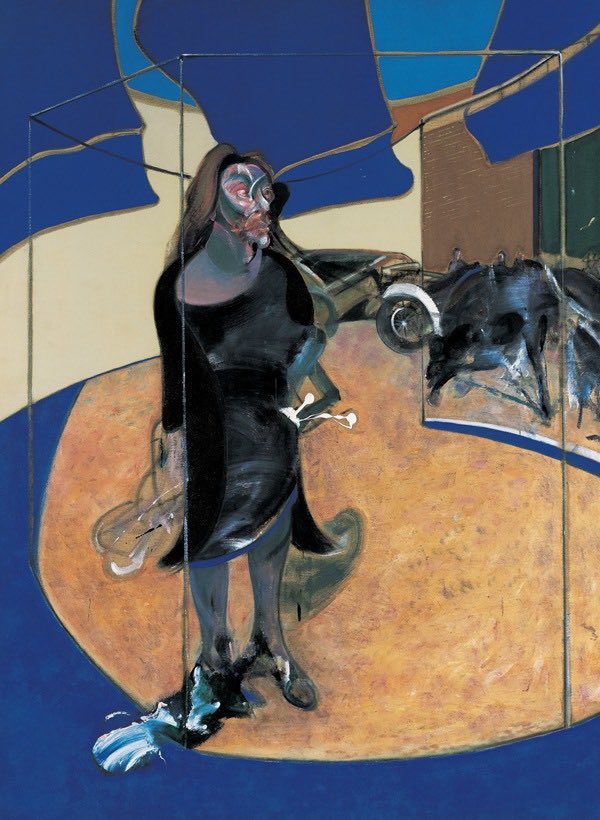
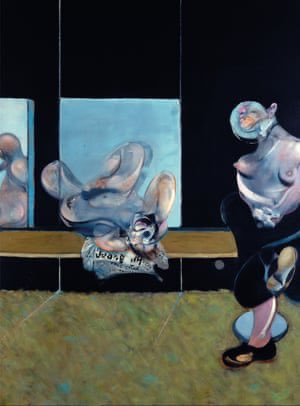
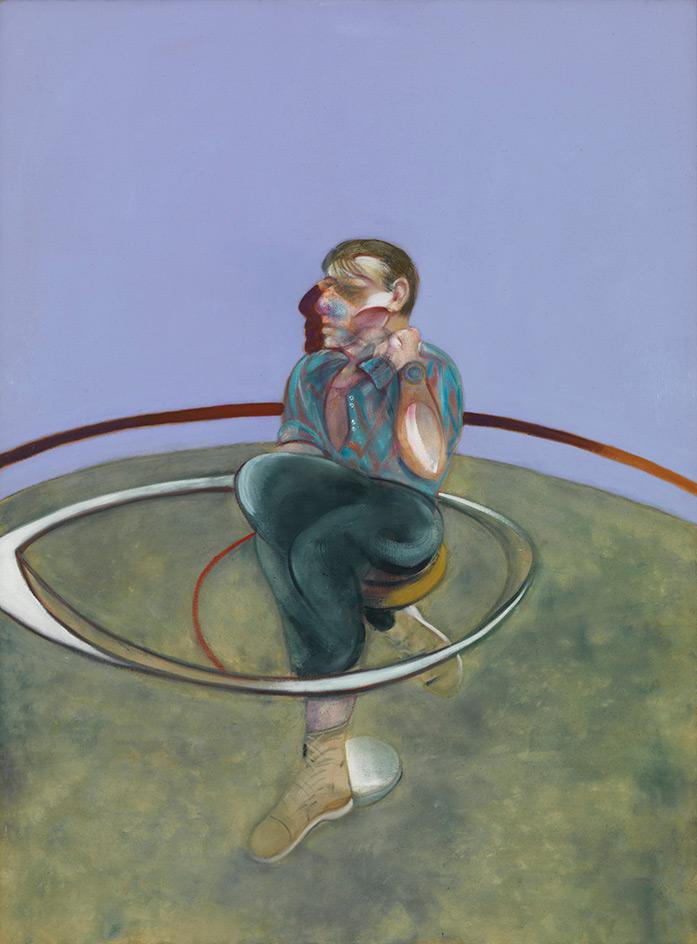
“You’re mad—godstruck, godswept, godnonsensical”
fr. Agamemnon by Aiskhylos
translated by Anne Carson


fr. Agamemnon by Aiskhylos
translated by Anne Carson

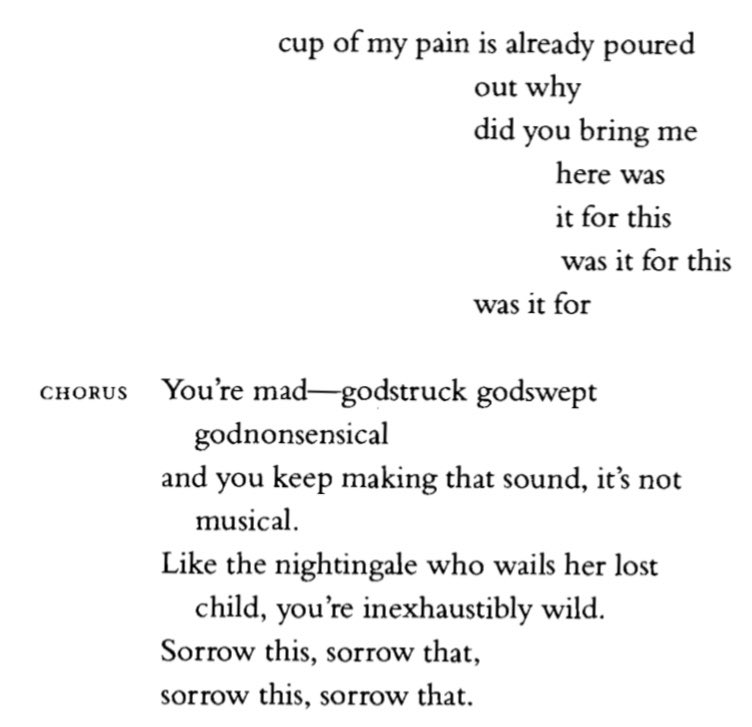
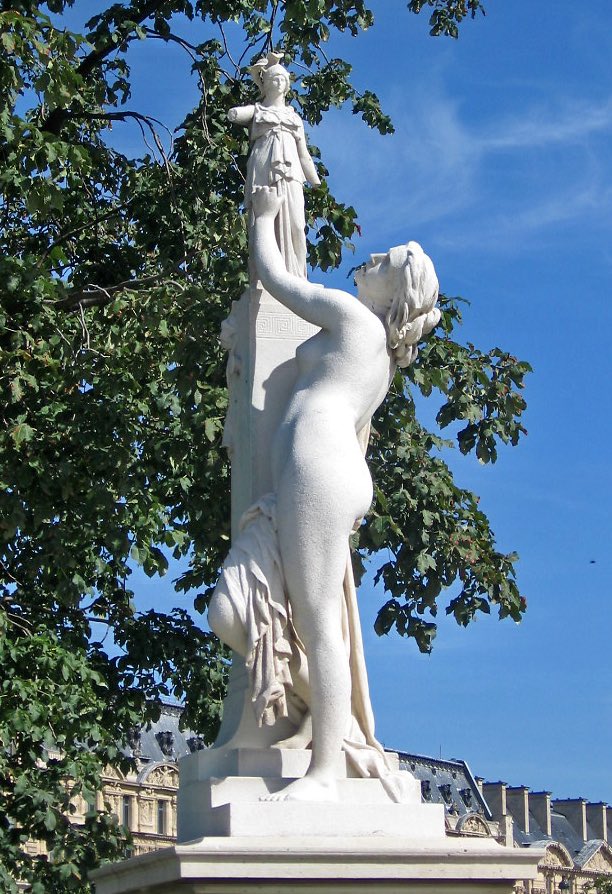
The world is made up of compost of millions who have died and are blowing about. The dead are blowing in your nostrils every second you breathe in. It’s a macabre way of putting it, perhaps; but anything that’s at all accurate about life is always macabre.
—Francis Bacon in 1980
—Francis Bacon in 1980
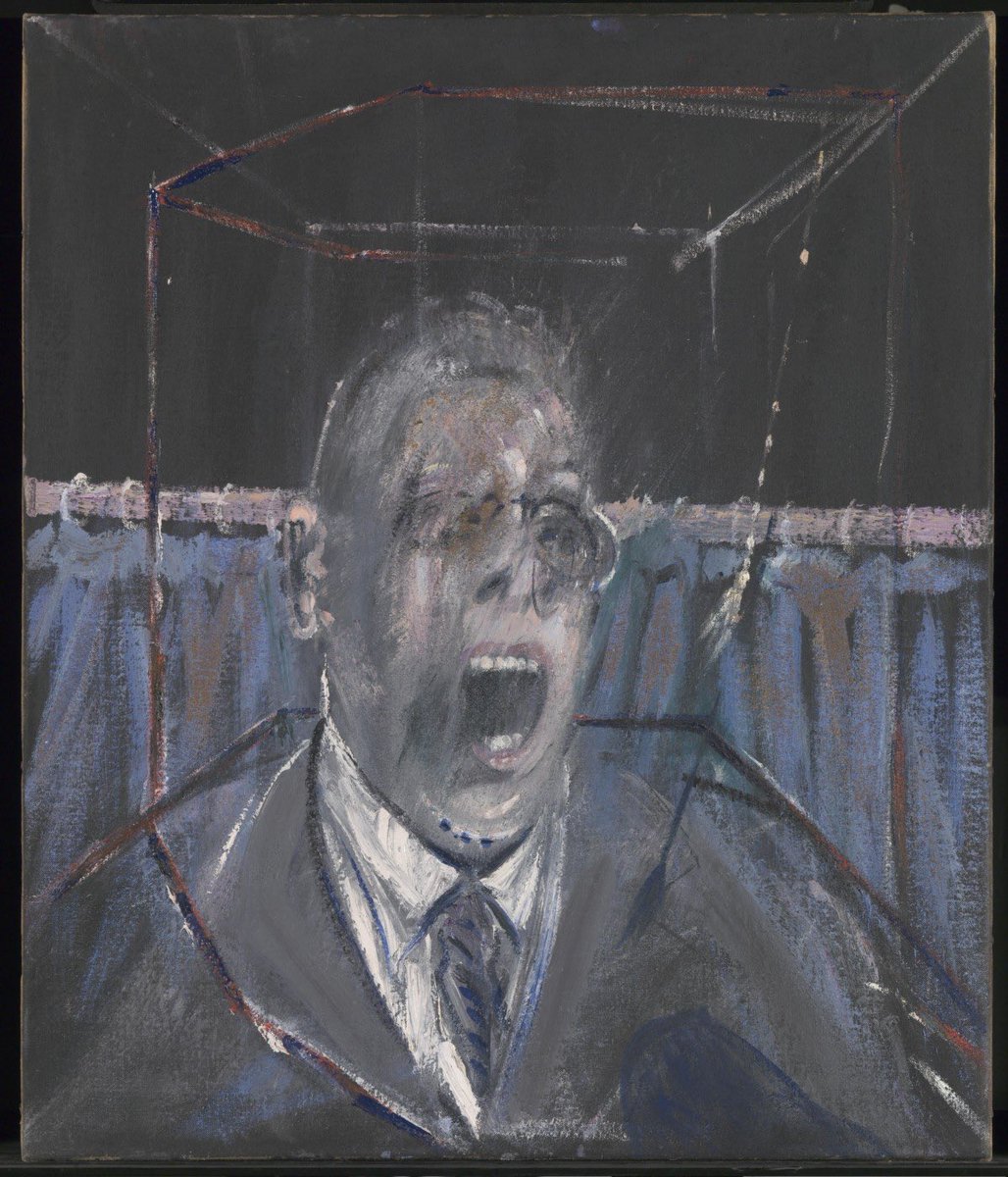
On Francis Bacon’s Three Studies for a Crucifixion:
“His pictures bear on ‘the inanity of our situation in the world as ephemeral beings, more capable than other living creatures of brilliant and pointless ecstasies’... they address the human condition.”
nybooks.com/articles/2007/…



“His pictures bear on ‘the inanity of our situation in the world as ephemeral beings, more capable than other living creatures of brilliant and pointless ecstasies’... they address the human condition.”
nybooks.com/articles/2007/…
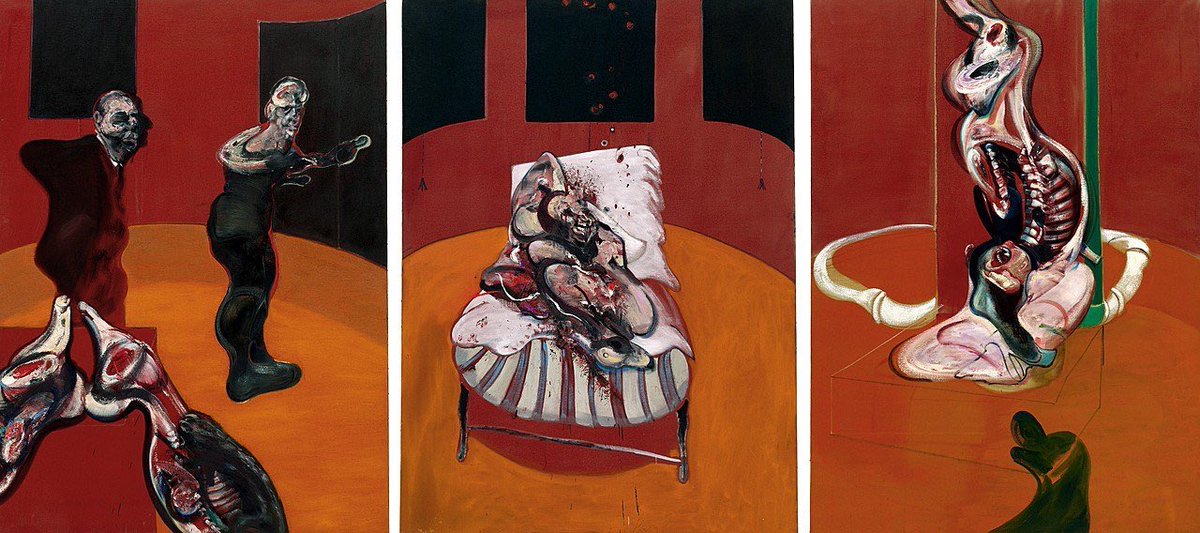
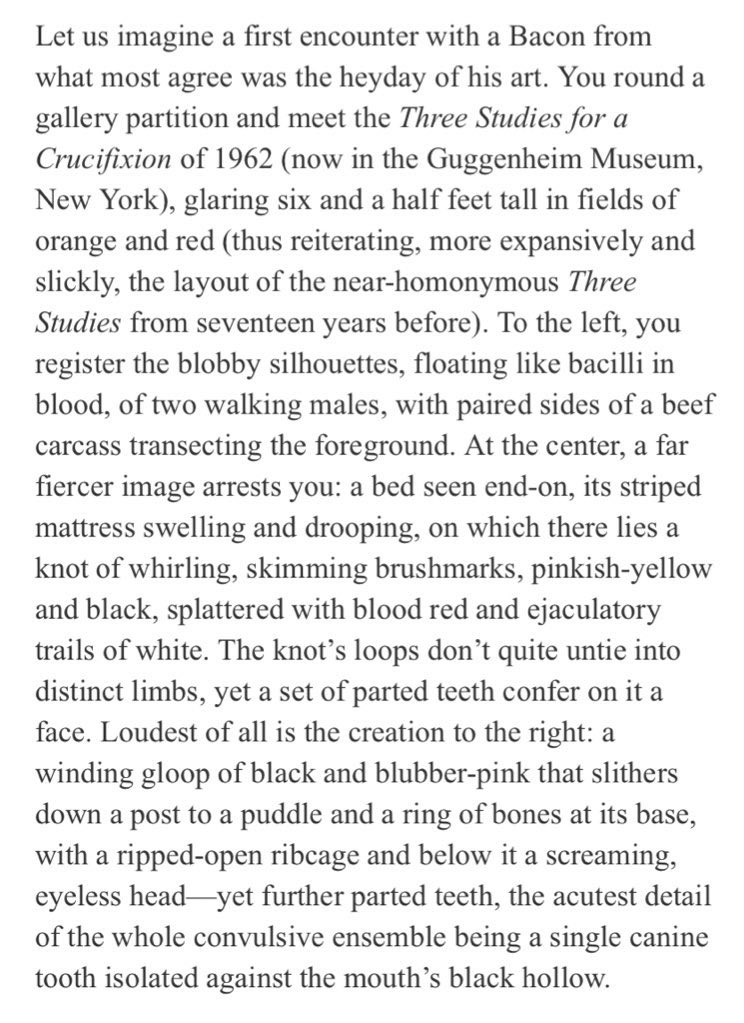
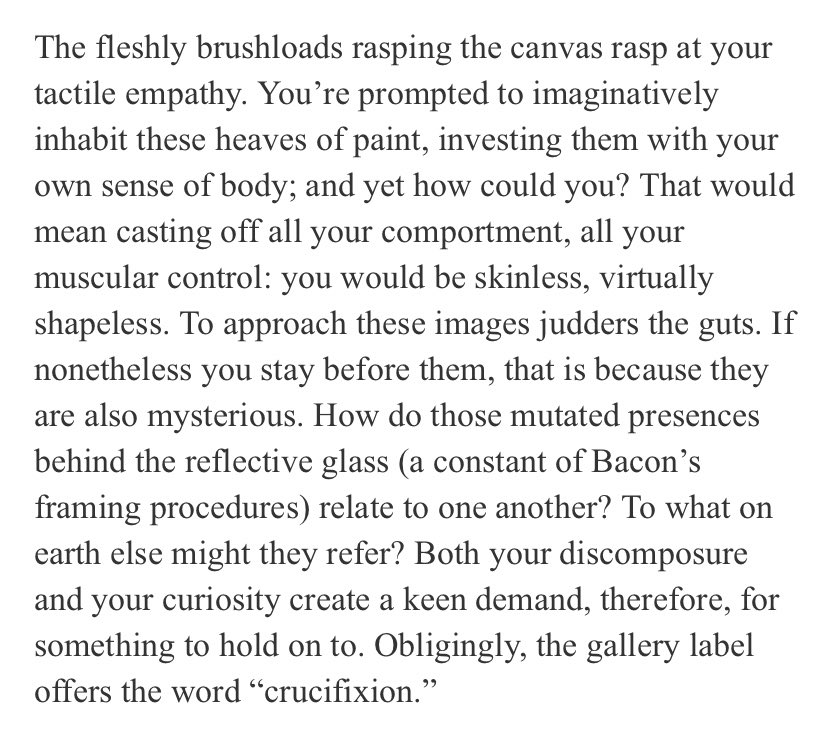

Austrian art historian and critic Wieland Schmied describes Francis Bacon’s Triptych May–June 1973, done after the death of a boyfriend of Bacon’s, as “the most tortured and desolate rendering of the human condition in the entire history of art.” 
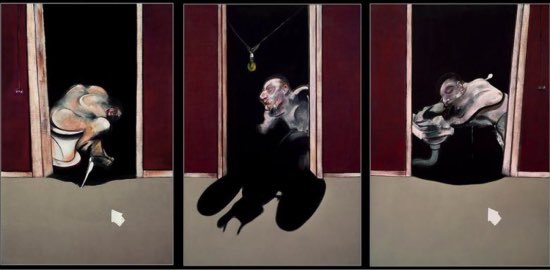
“Fixated on the human figure, he regards the prospect of further pictorial fragmentation as a downward detour for art. Up on the heights stand Velazquez, the supreme interpreter of human appearance. But the recording of human appearance has now been taken out of human hands.” Id. 



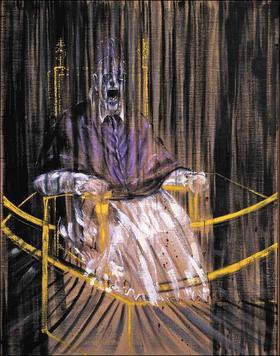
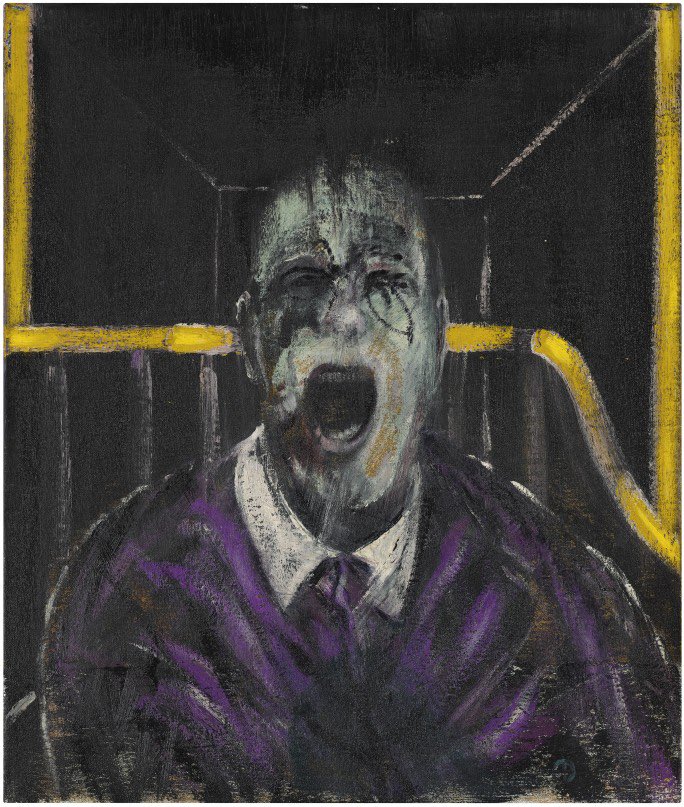
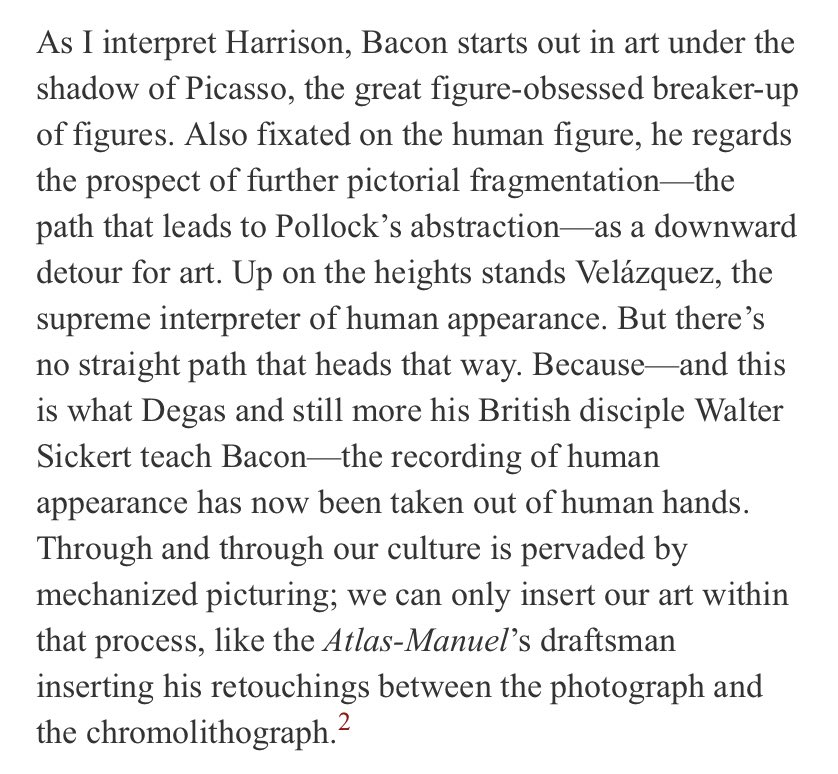
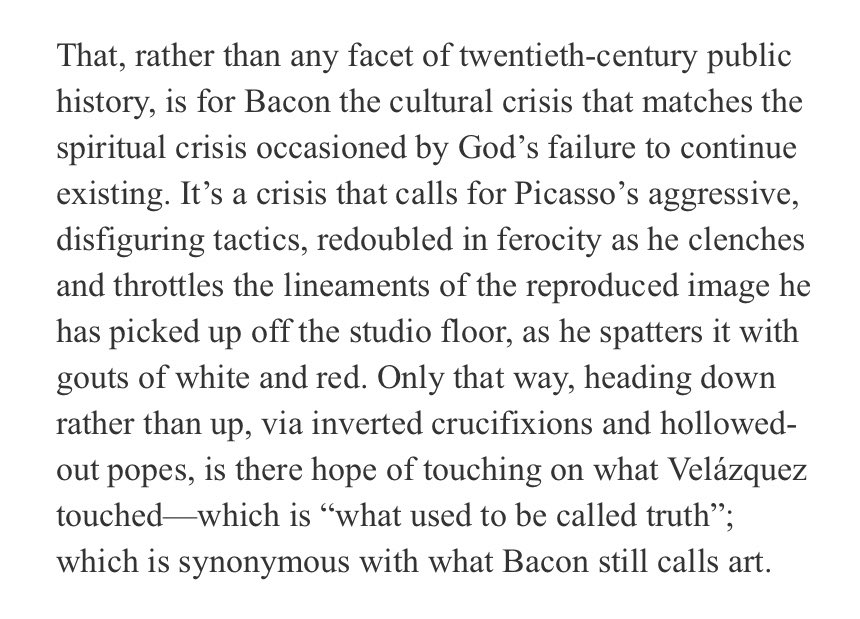
Milan Kundera writes that the body, as revealed by Francis Bacon’s portraits, is pure contingency: “an accident that could as easily have been put together some other way—for instance, I don’t know—with three hands, or with the eyes set in the knees.”
fr. nybooks.com/articles/2011/…



fr. nybooks.com/articles/2011/…
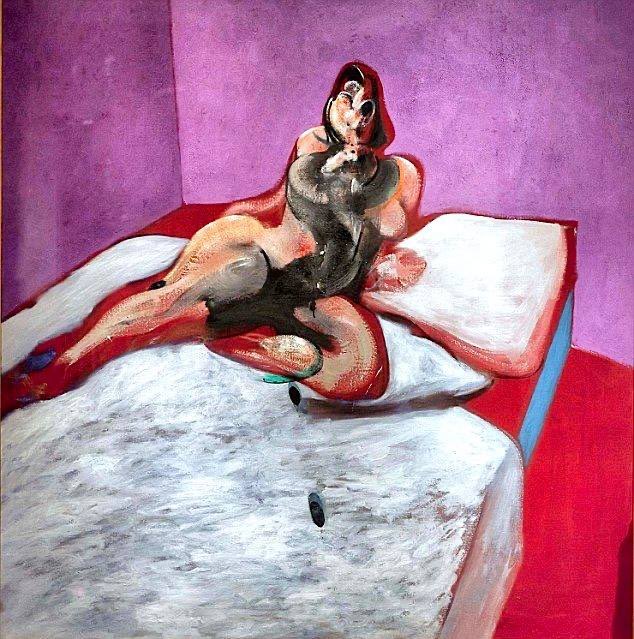
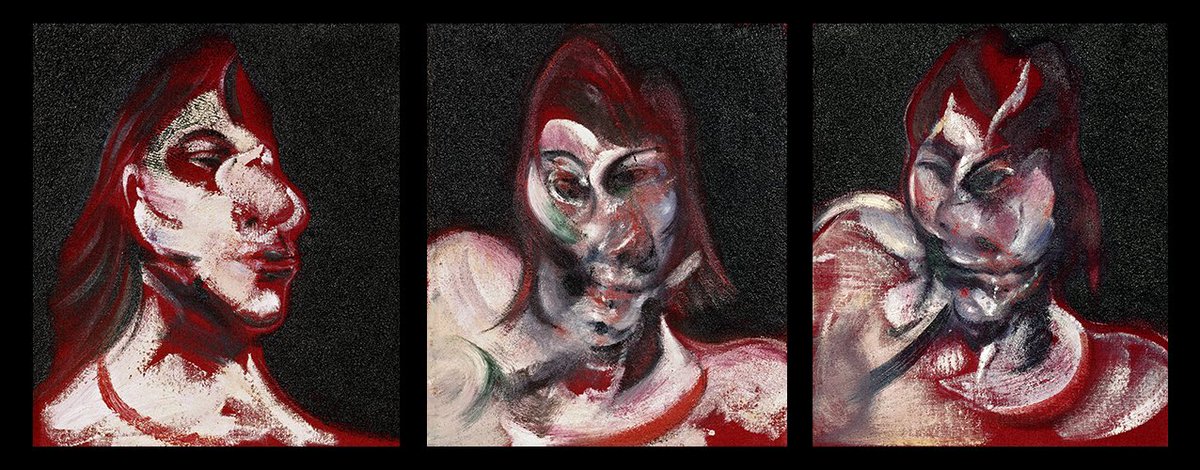
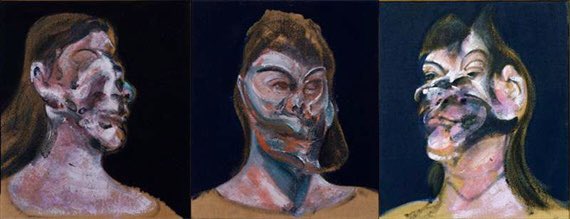
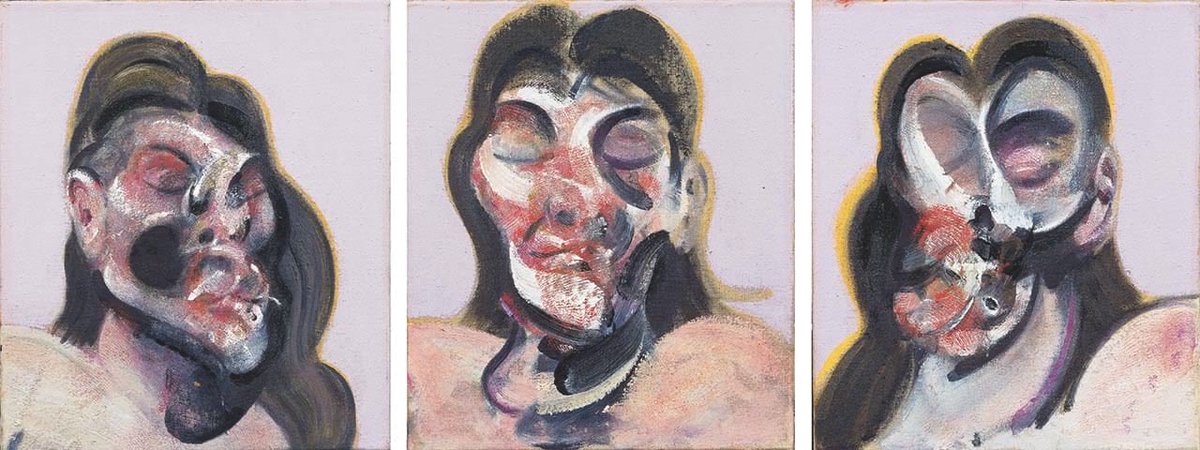
Never having attended art school was a source of pride to Bacon. He taught himself to paint; tragically, he failed to teach himself to draw. This is fine only so long as the artist avoids subjects that call for graphic skill, for instance, hands.
fr. nybooks.com/articles/2009/…



fr. nybooks.com/articles/2009/…
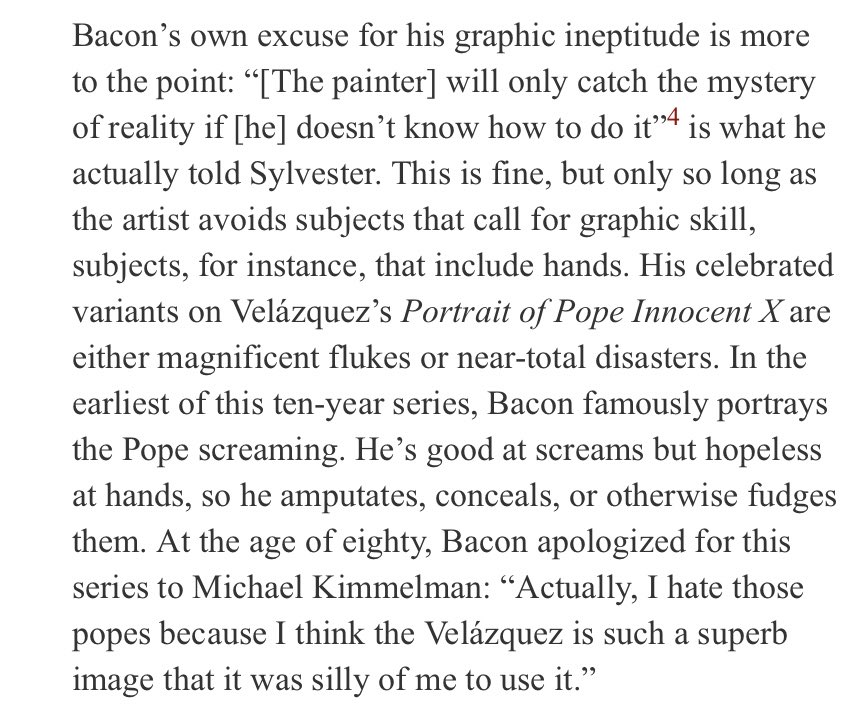
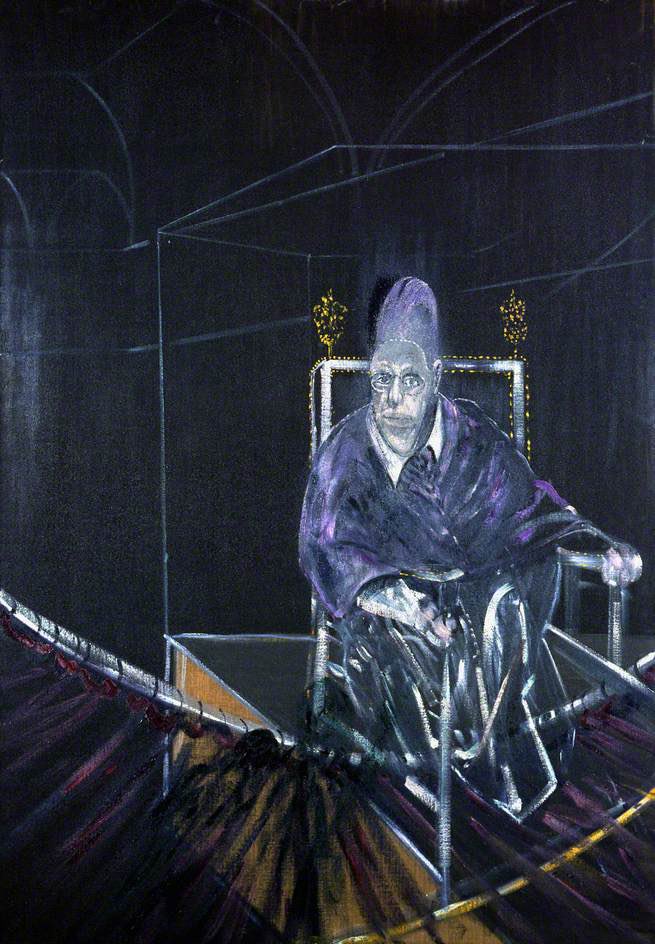
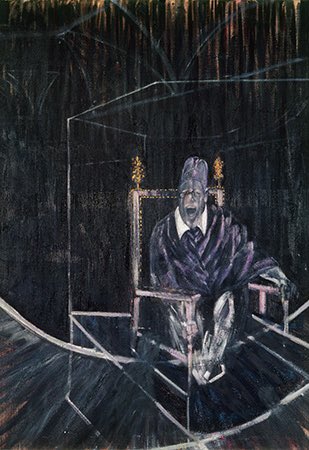
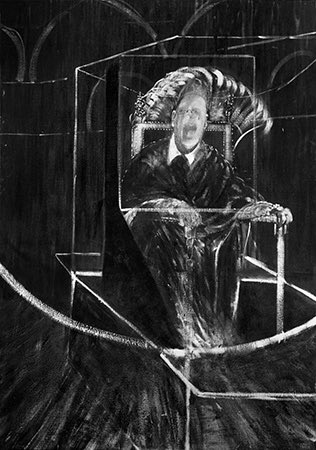
The inspiration for Bacon’s oft-depicted screaming expression was a film still of a screaming female character in Sergei Eisenstein’s 1925 movie The Battleship Potemkin; the frame shows an elderly woman wearing a pince-nez, shot through the eye and caught at the instant of death. 
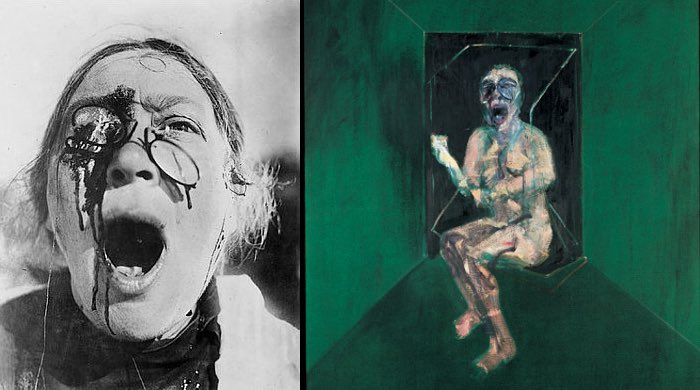
Triptych August 1972 was painted after the suicide of Bacon’s lover, George Dyer. Dyer is on the left and Bacon is on the right, set against black voids. The artist’s biographer wrote: ‘What death has not already consumed seeps incontinently out of the figures as their shadows.’ 
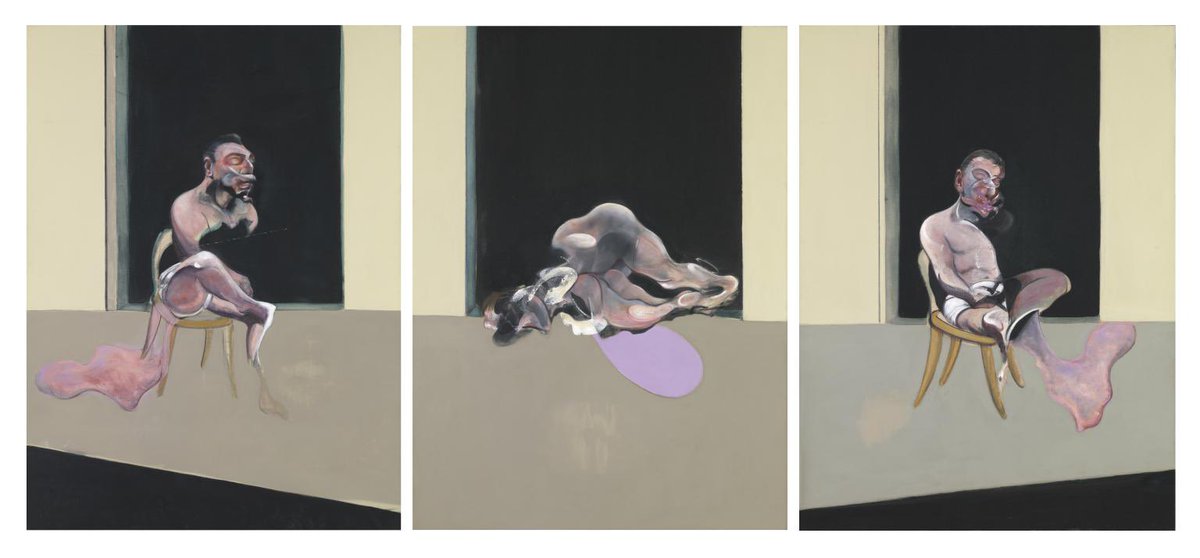
In the mid-50s, Bacon was involved with a former fighter pilot who had a drinking problem and violent tendencies; he appears, menacing and dark-suited, in Bacon’s 1954 Man in Blue series, surrounded by frames that look like a cage (a common Bacon motif) 



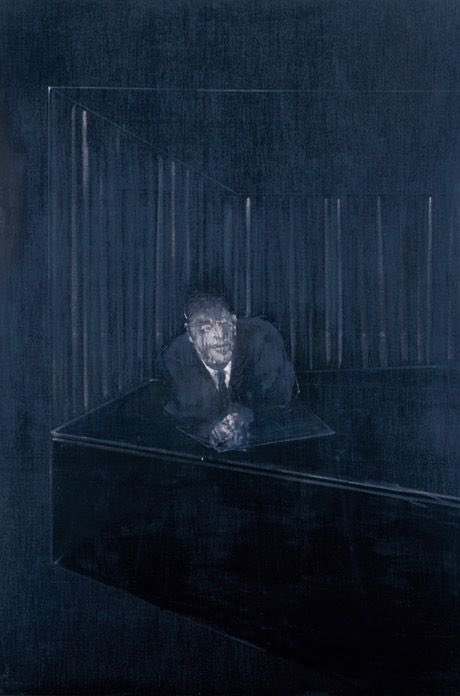
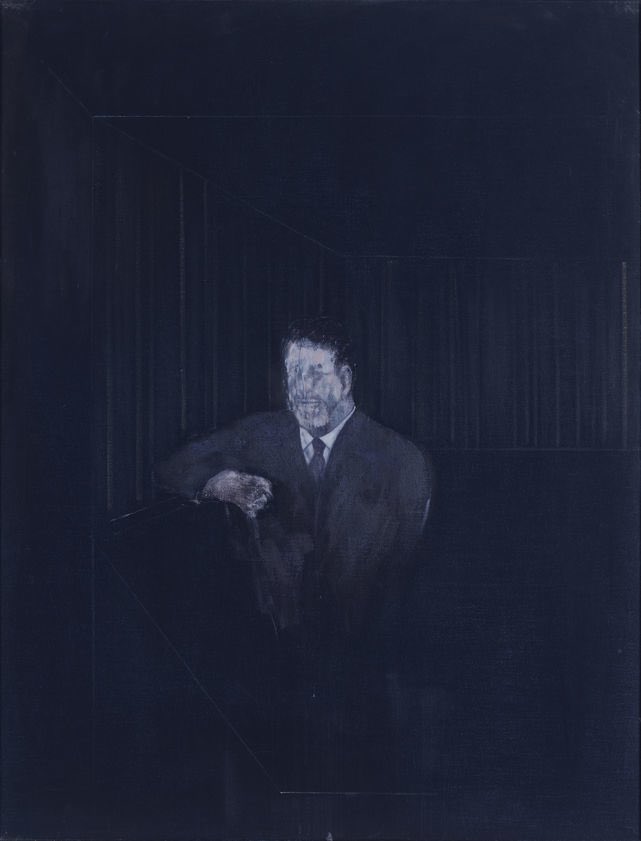
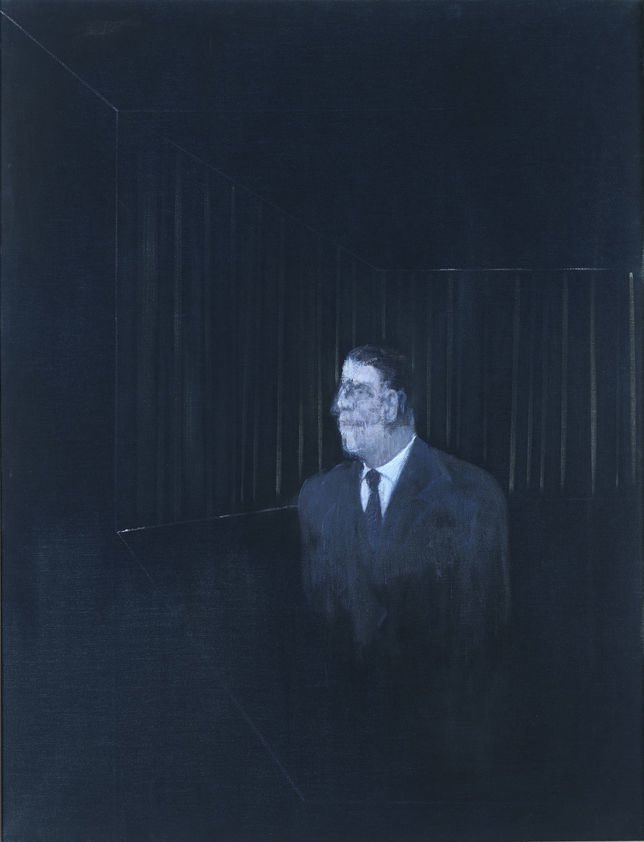
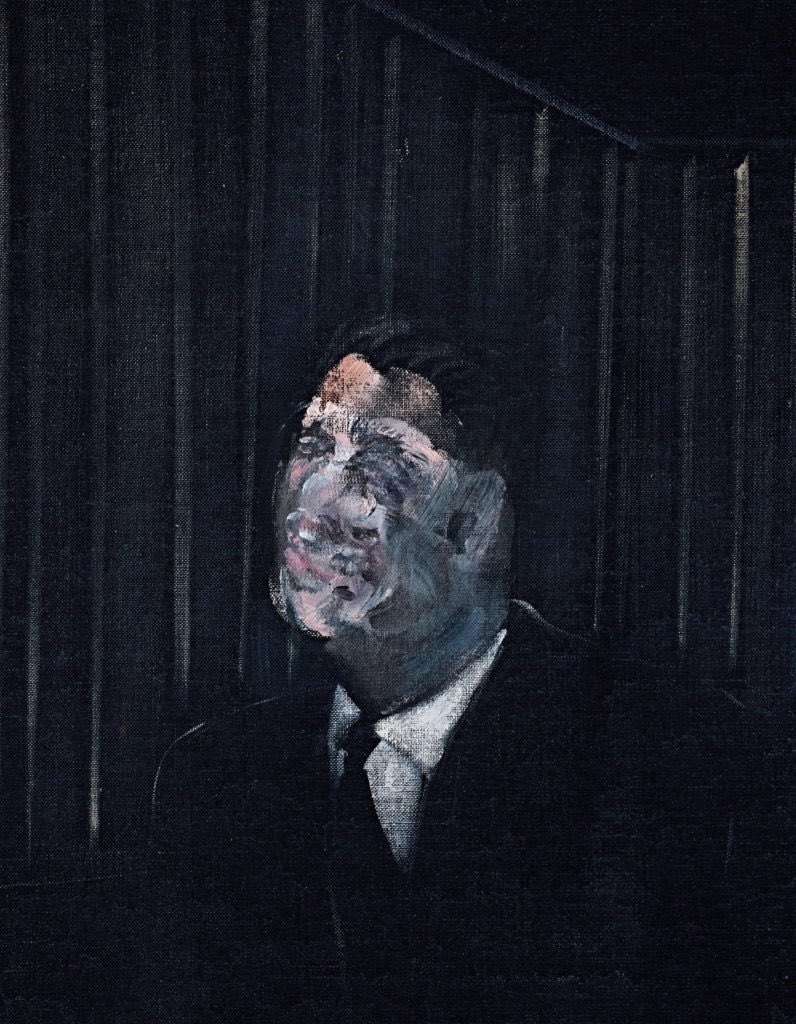
“He was in a bad period of drinking and wanted to do a painting about ‘the way men behave to one another’—what better metaphor than the Crucifixion?”
Crucifixion 1933
Three Studies for Figures at the Base of a Crucifixion 1944
Three Studies for a Crucifixion 1962
Crucifixion 1965



Crucifixion 1933
Three Studies for Figures at the Base of a Crucifixion 1944
Three Studies for a Crucifixion 1962
Crucifixion 1965
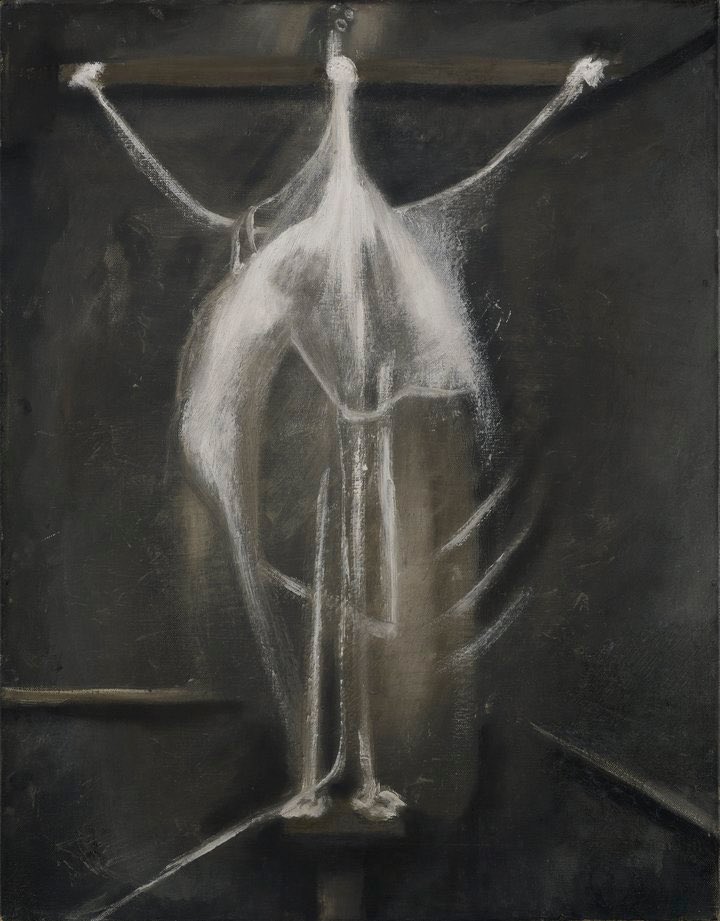
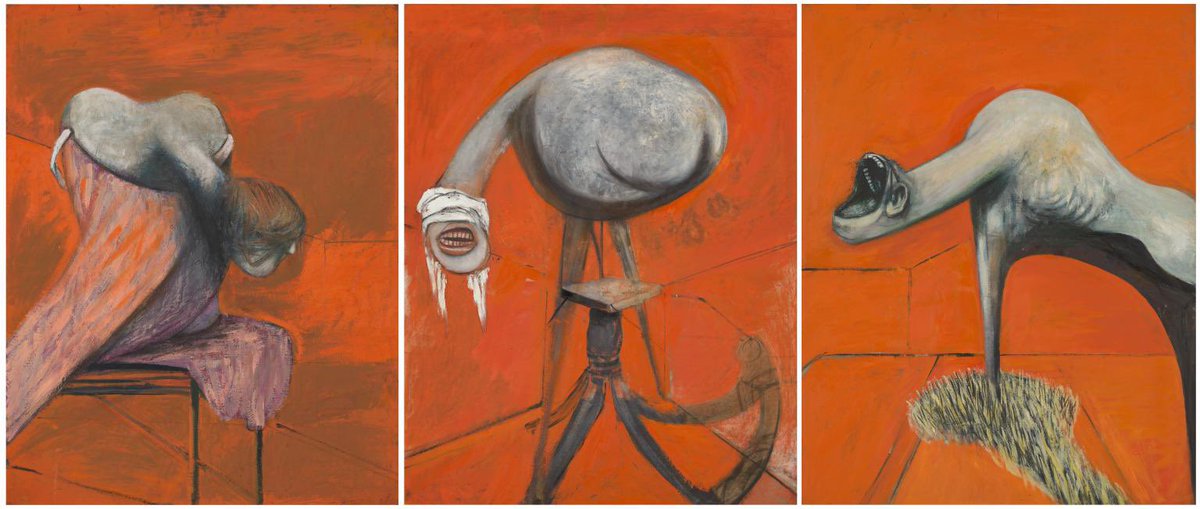
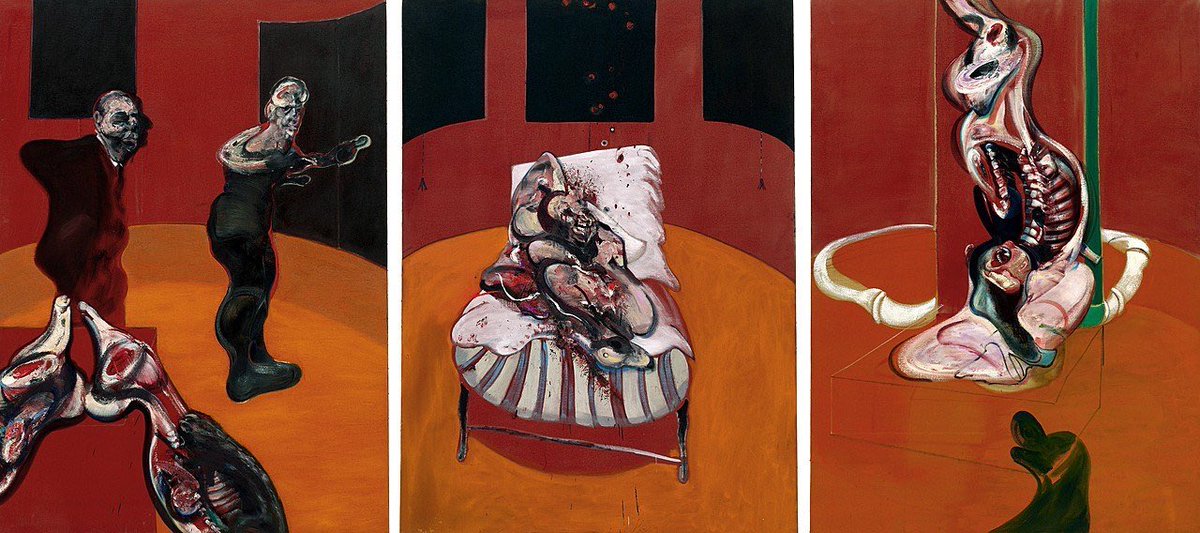
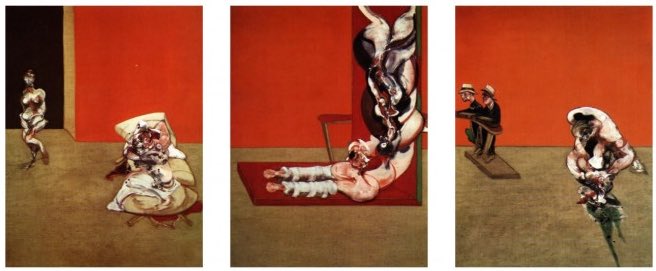
The face on the left appears like a mask. It is fully visible in the center panel, gazing outward. On the right, the face is already in another realm, some of it having merged with the blackness. What little of it remains has an aura of enormous suffering.
nybooks.com/articles/2015/…
nybooks.com/articles/2015/…
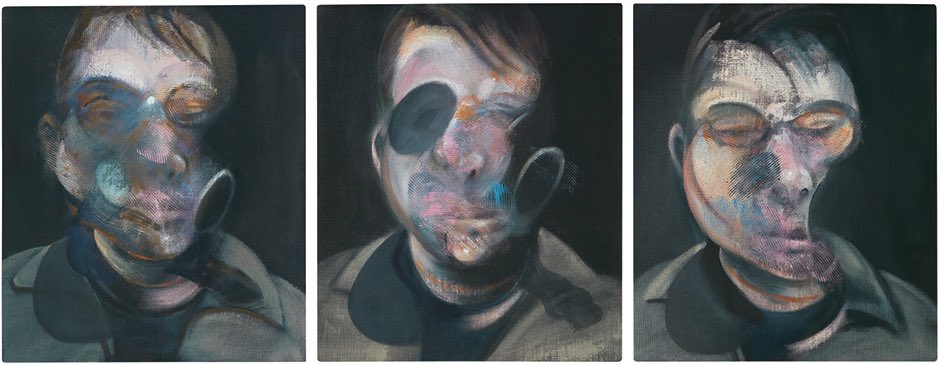
These shadows, this blurring of self, at its most intense and magisterial—for example, Bacon’s Self-Portrait of 1987—created a force and energy in the pictures that would strike the nervous system of the viewer more powerful than any single, stable figure.
nybooks.com/articles/2015/…
nybooks.com/articles/2015/…
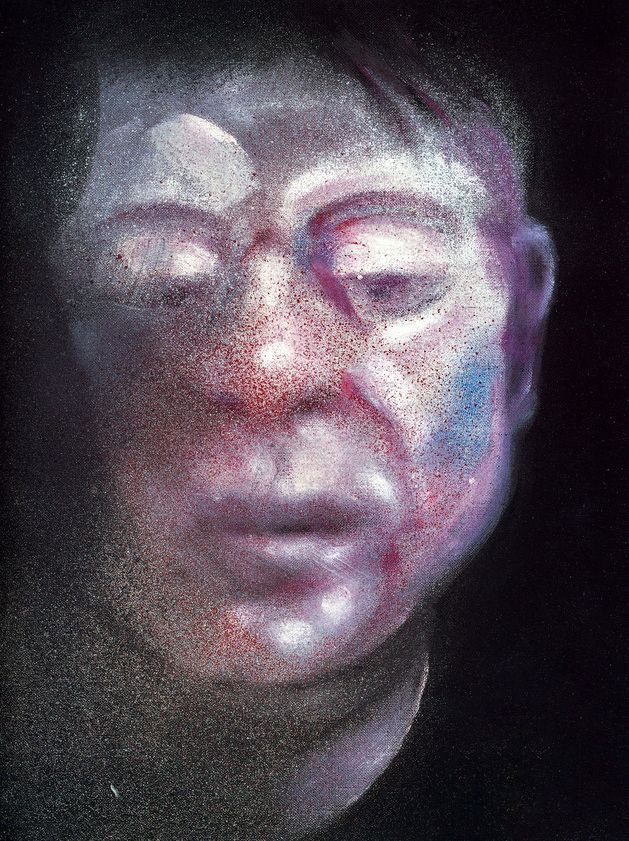
“Brave girl.”
“People never say that to a lucky person do they?”
fr. Agamemnon by Aiskhylos
translated by Anne Carson

“People never say that to a lucky person do they?”
fr. Agamemnon by Aiskhylos
translated by Anne Carson
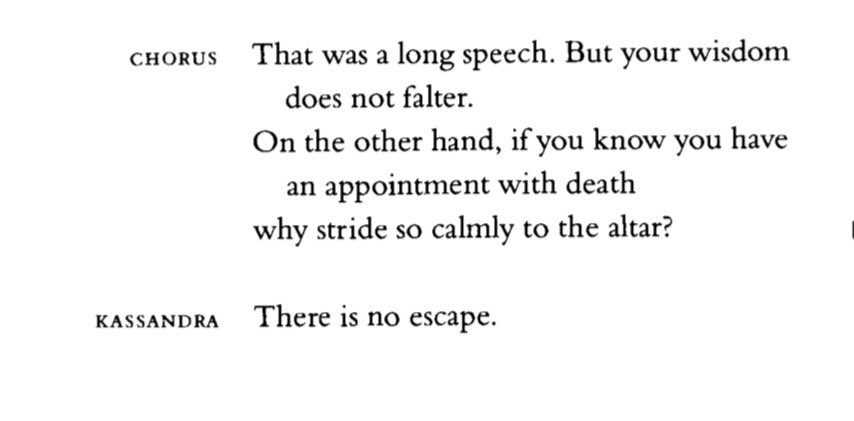
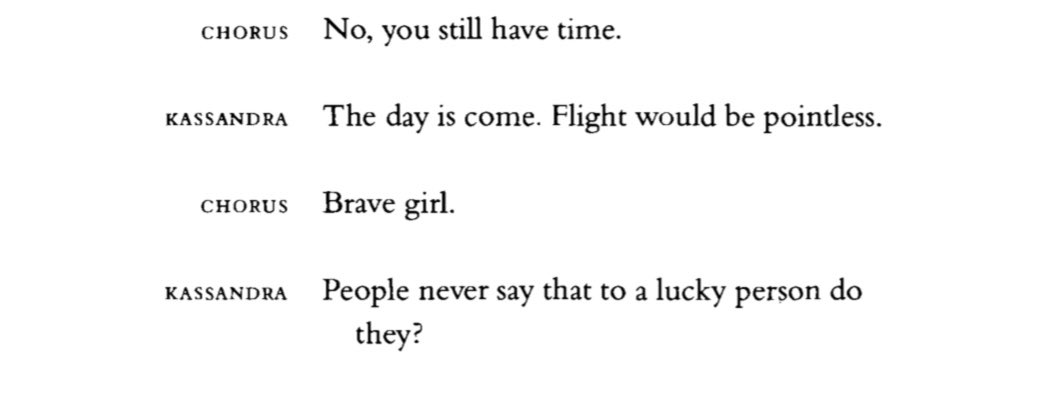
The Couplings depict a theme that preoccupied Bacon throughout his career: the relationship between two people, both physical and psychological. More: gagosian.com/exhibitions/20…
Two Figures 1953
Two Figures in the Grass 1954
Two Figures on a Couch 1967
Two Figures with a Monkey 1973



Two Figures 1953
Two Figures in the Grass 1954
Two Figures on a Couch 1967
Two Figures with a Monkey 1973
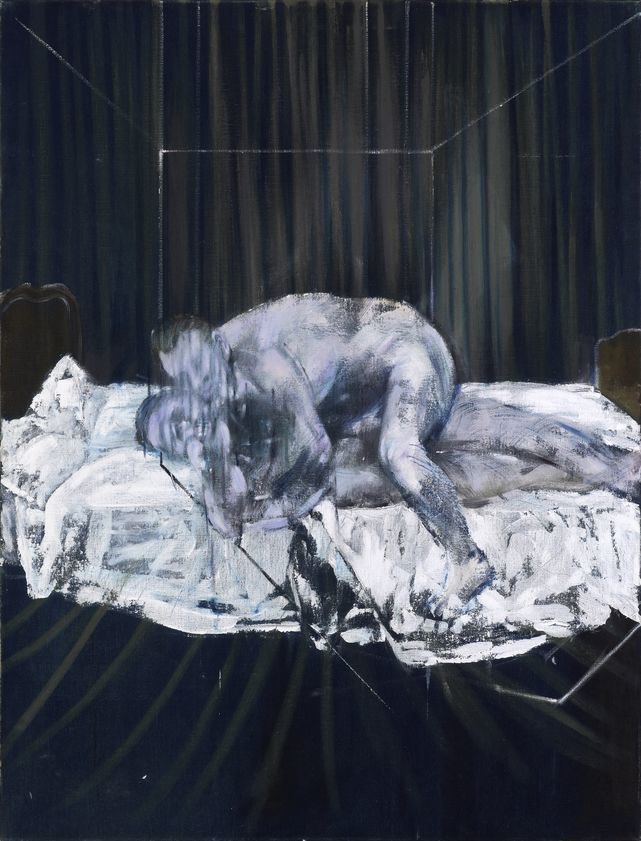
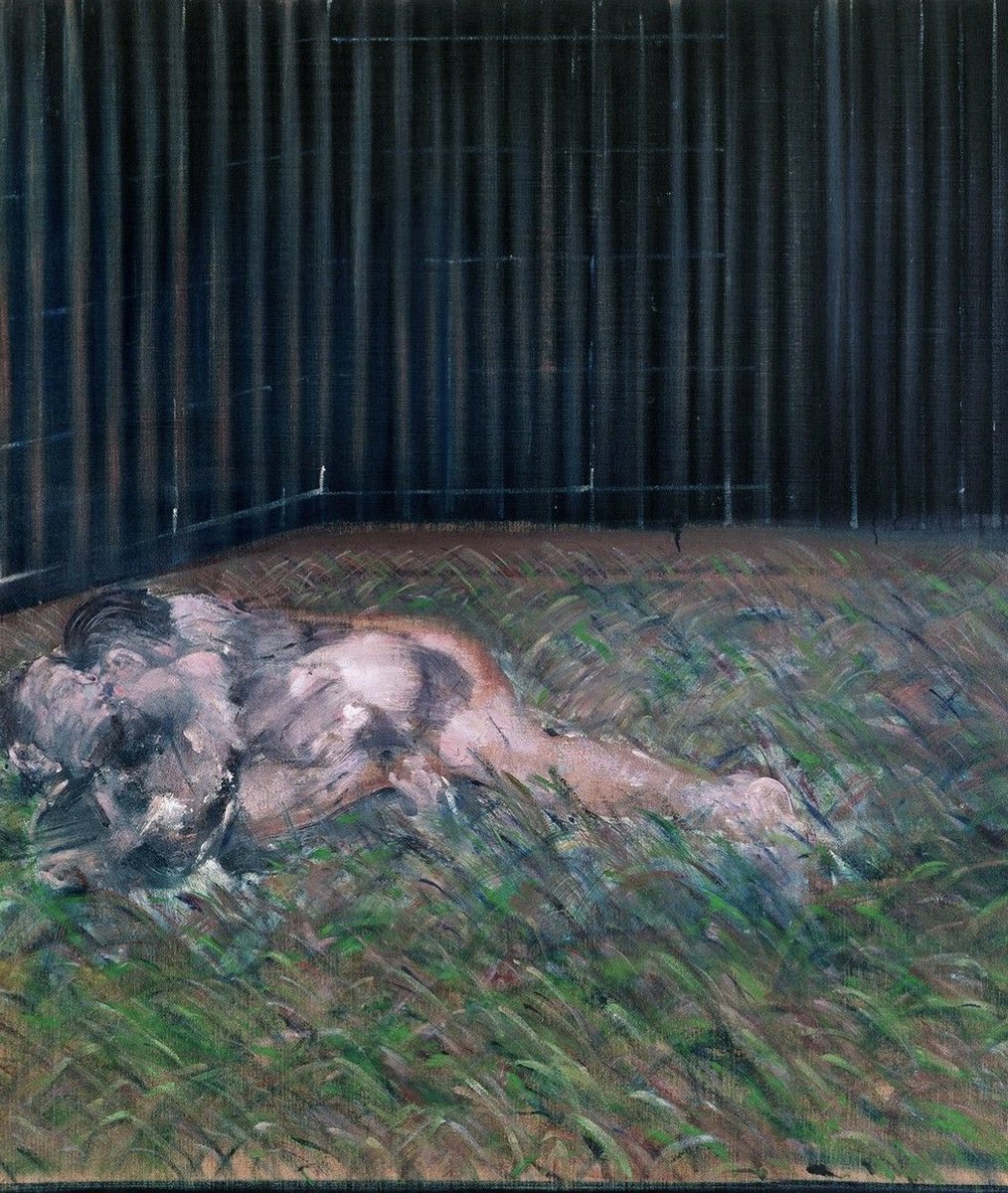
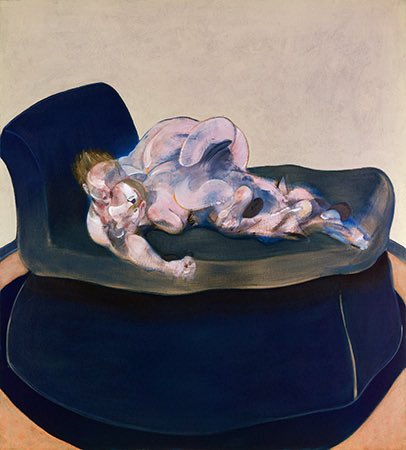
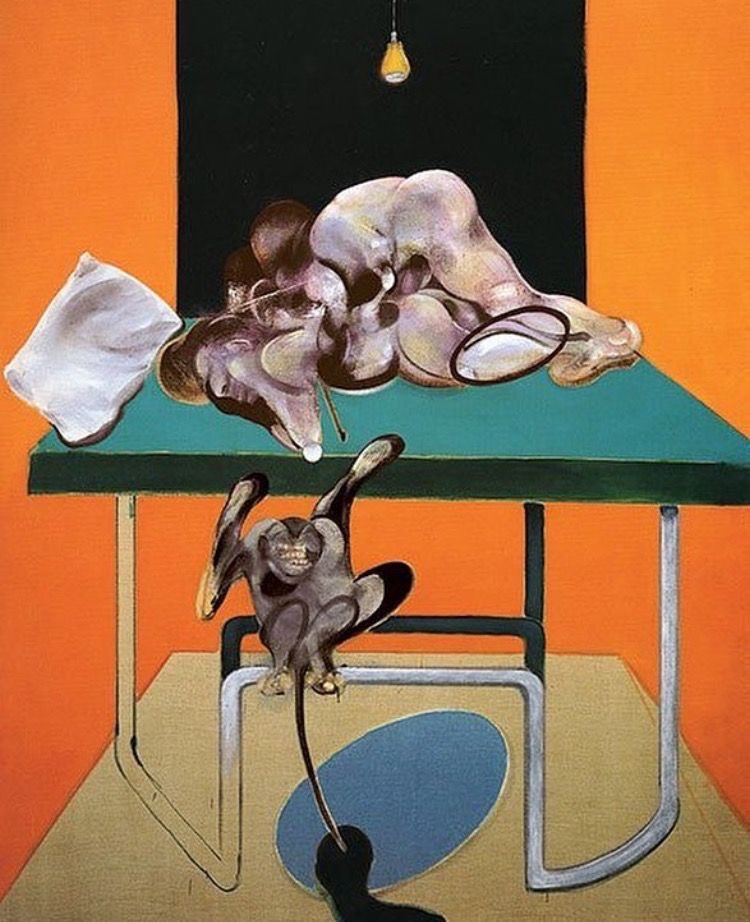
“I have always aspired to express myself in the most direct and crudest way possible, and maybe, if something is transmitted directly, people find it horrifying. Because people tend to take offense at facts, or at what was once called truth.”
—Francis Bacon



—Francis Bacon
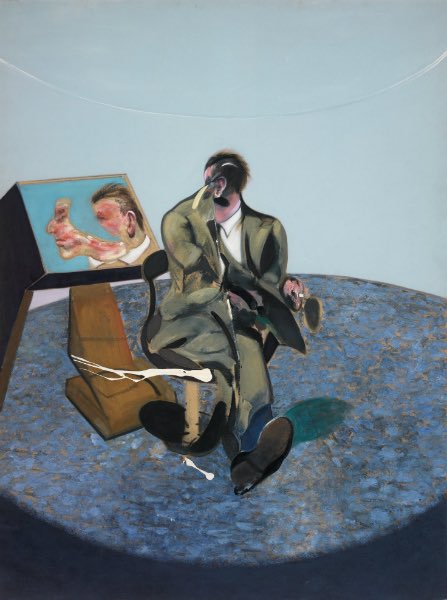
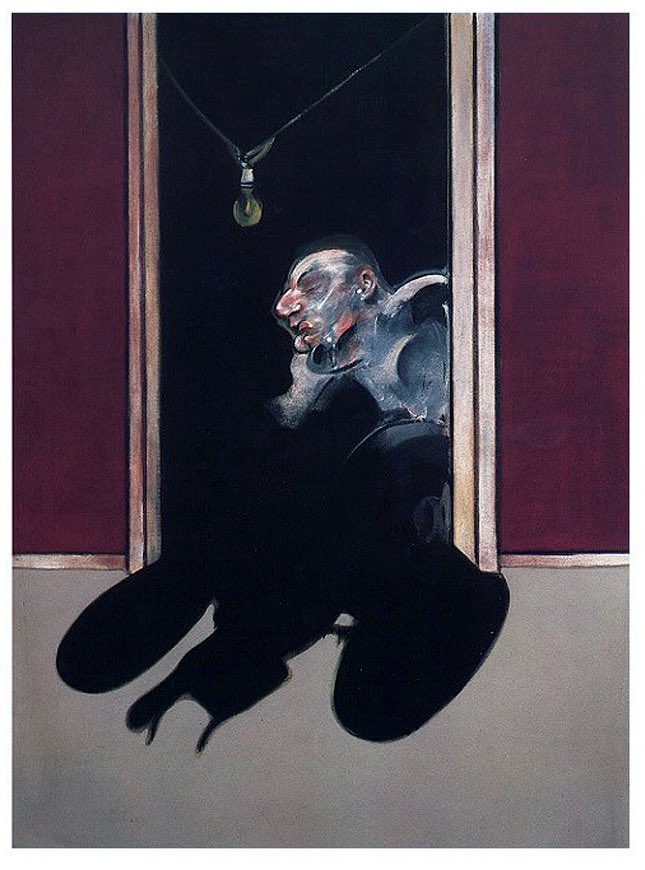
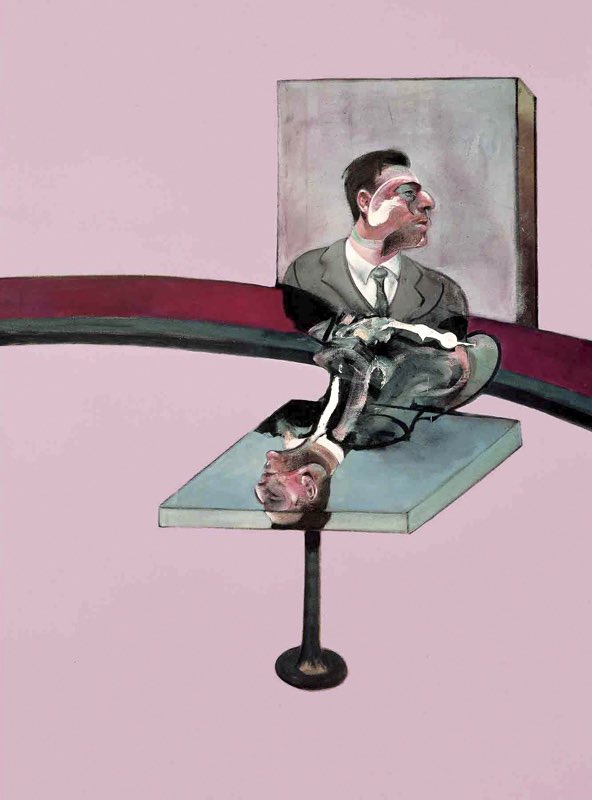
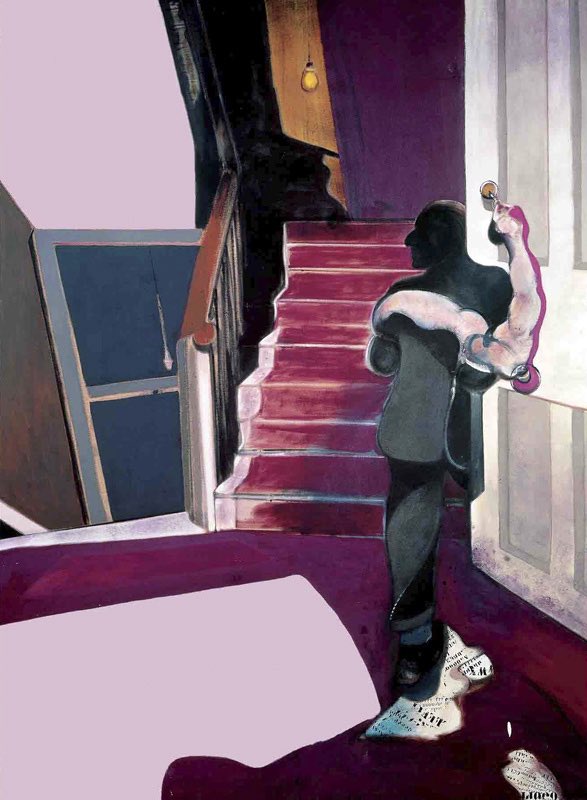
“What was it like to lie in bed with Hades surrounded by corpses? What was on Persephone’s mind? Was she afraid? What did they talk about while the damned writhed around them in their torments?”
— Charles Simic reviewing Louise Glück’s Averno in @nybooks
nybooks.com/articles/2006/…
— Charles Simic reviewing Louise Glück’s Averno in @nybooks
nybooks.com/articles/2006/…
Is she
a born wanderer, in other words
an existential
replica of her own mother, less
hamstrung by ideas of causality?
[…]
My soul
shattered with the strain
of trying to belong to earth—
— Louise Glück, Persephone the Wanderer

a born wanderer, in other words
an existential
replica of her own mother, less
hamstrung by ideas of causality?
[…]
My soul
shattered with the strain
of trying to belong to earth—
— Louise Glück, Persephone the Wanderer
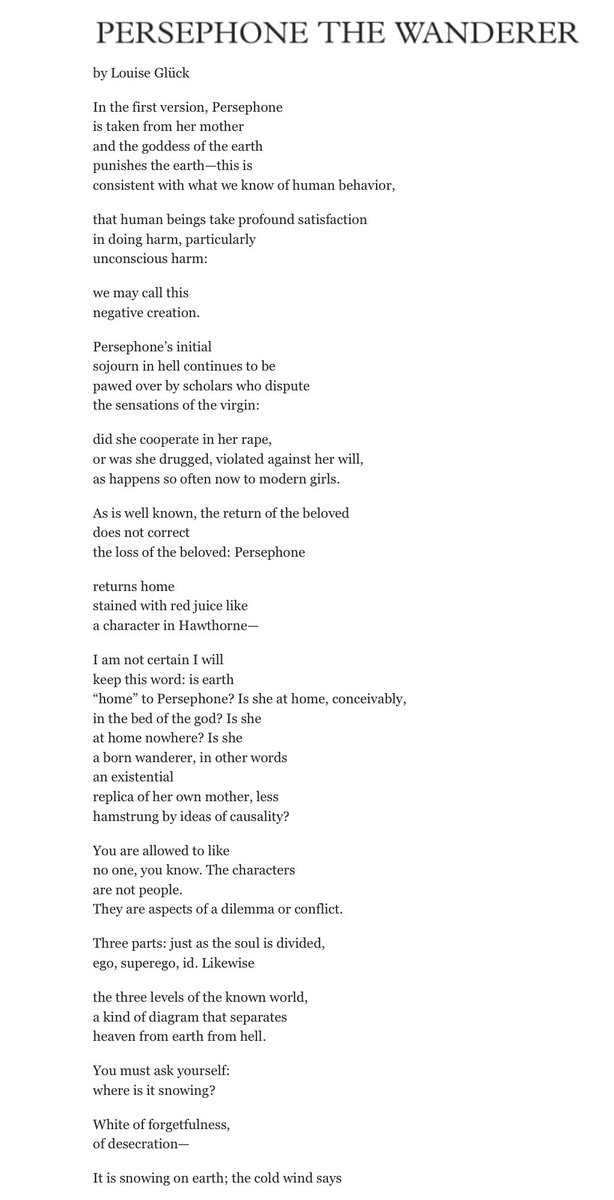
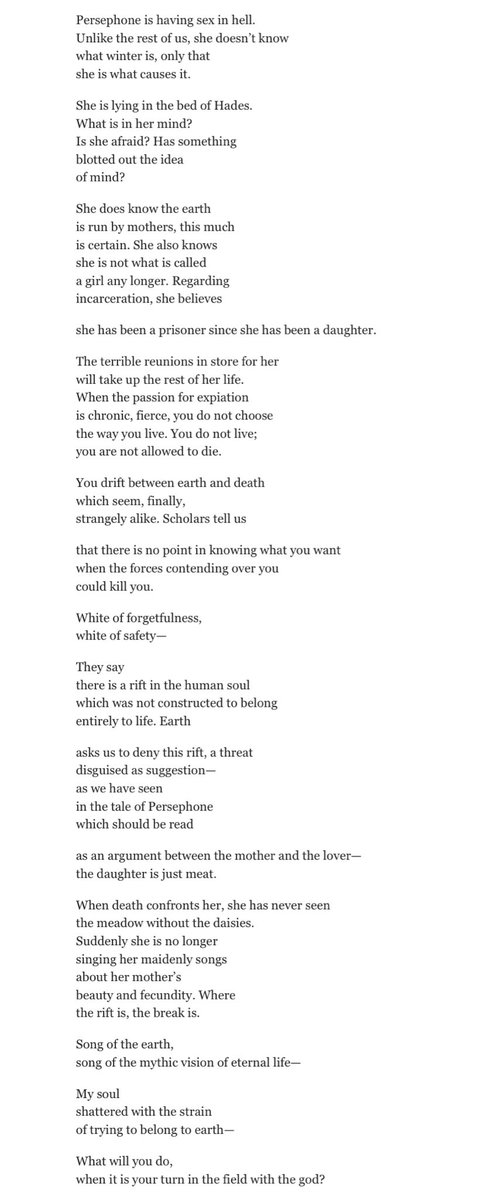
Hades to Persephone: With all those speckles on your skin did anyone tell you that you are a constellation, waiting to be loved and explored?
Persephone to Hades: You are the kindest thing that ever happened to me, even if that is not how our tale is told,
— Nikita Gill

Persephone to Hades: You are the kindest thing that ever happened to me, even if that is not how our tale is told,
— Nikita Gill
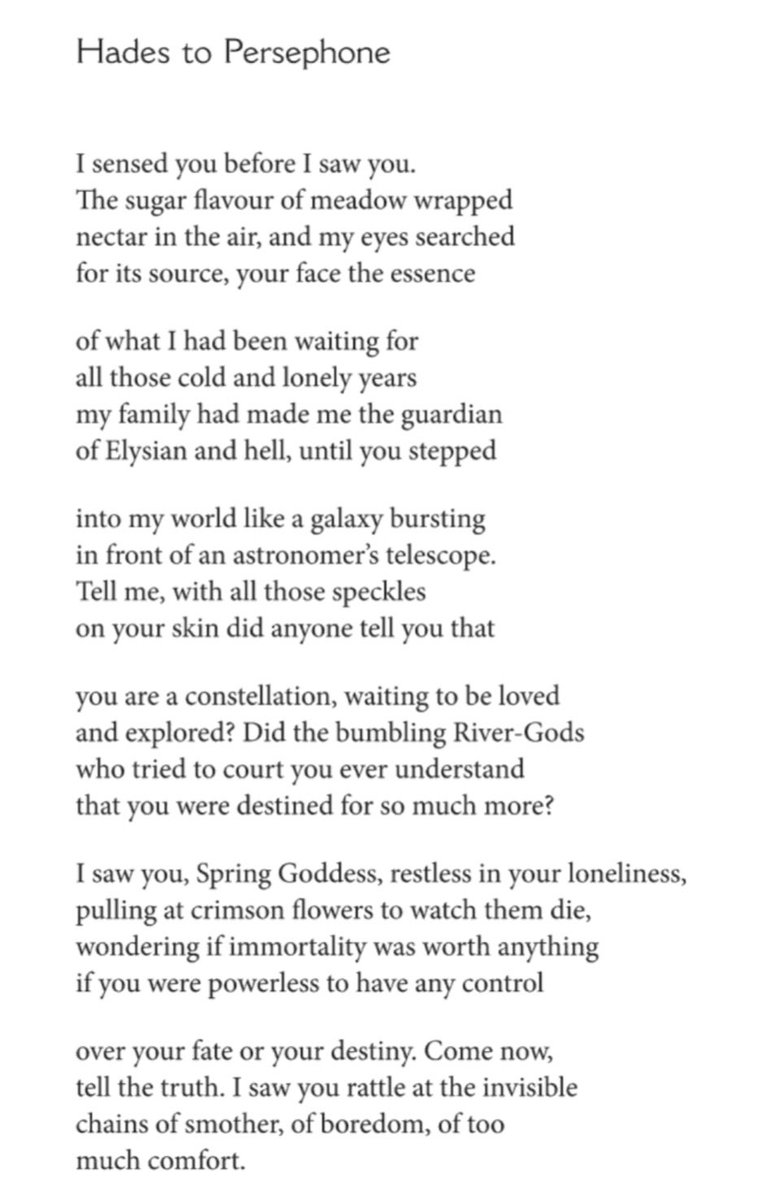
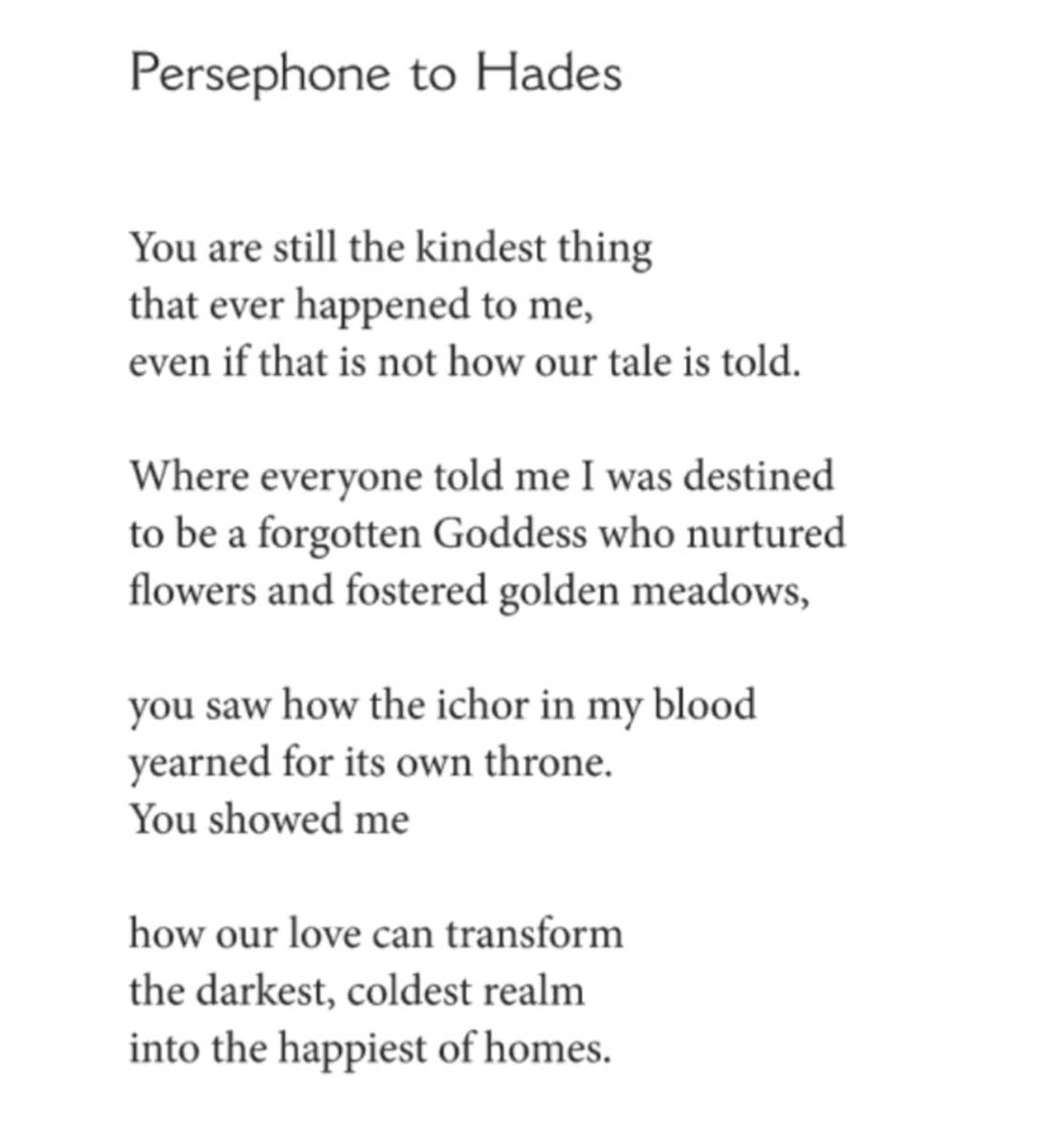
Francis Bacon, Painting, 1946
From just after WWII, Painting is an oblique but damning image of an anonymous figure. The umbrella might refer to Neville Chamberlain, known for carrying one. In the background, three window shades evoke a well-known photograph of Hitler’s bunker.
From just after WWII, Painting is an oblique but damning image of an anonymous figure. The umbrella might refer to Neville Chamberlain, known for carrying one. In the background, three window shades evoke a well-known photograph of Hitler’s bunker.
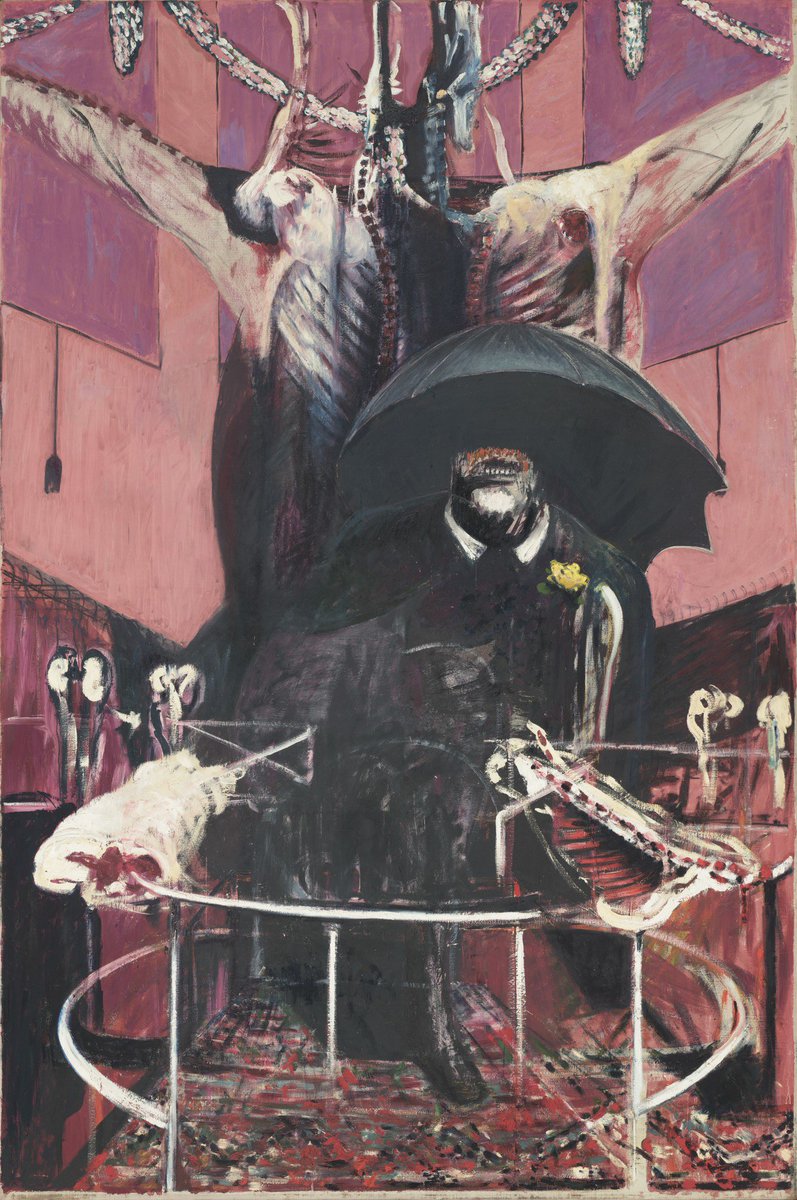
“A key notion in Bacon's art, that man is an animal, was explored in paintings throughout the 1950s in which humans and monkeys are depicted as interchangeable, if not almost indistinguishable: both imprisoned in dark cages with their mouths opened in screams."
— Michael Peppiatt



— Michael Peppiatt
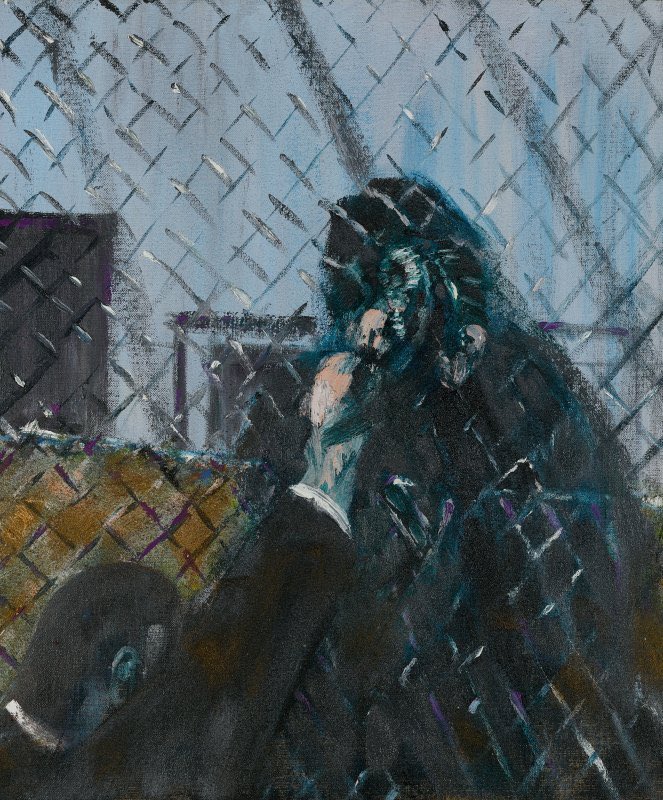
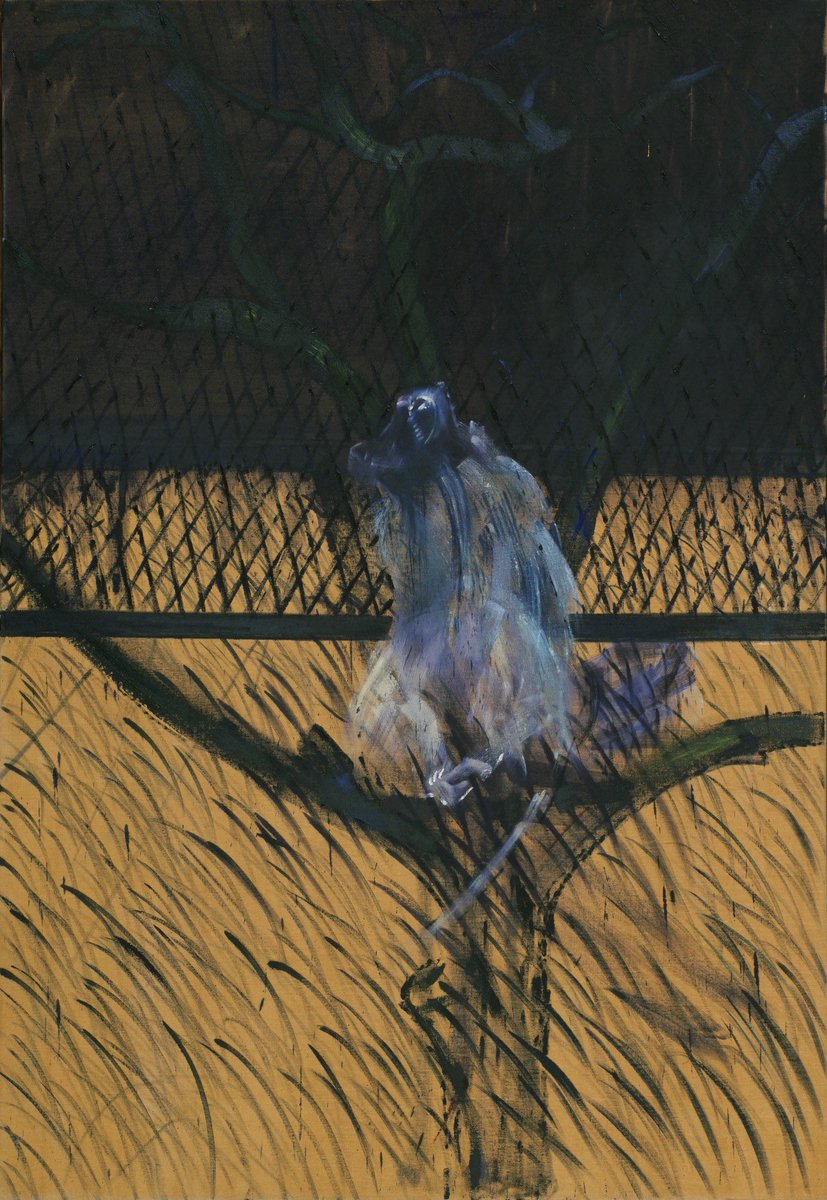
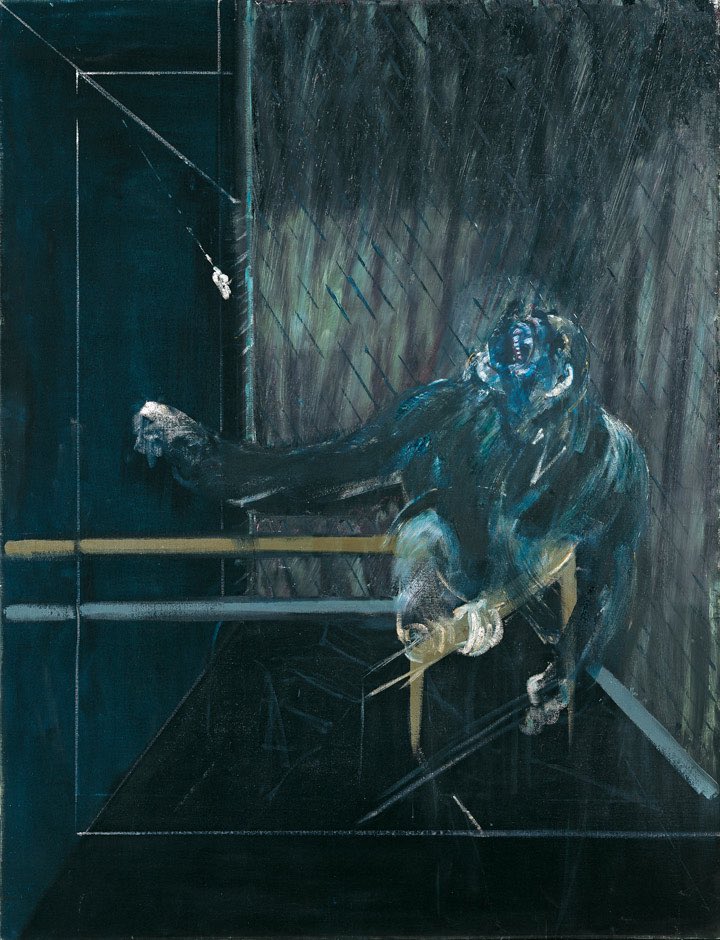
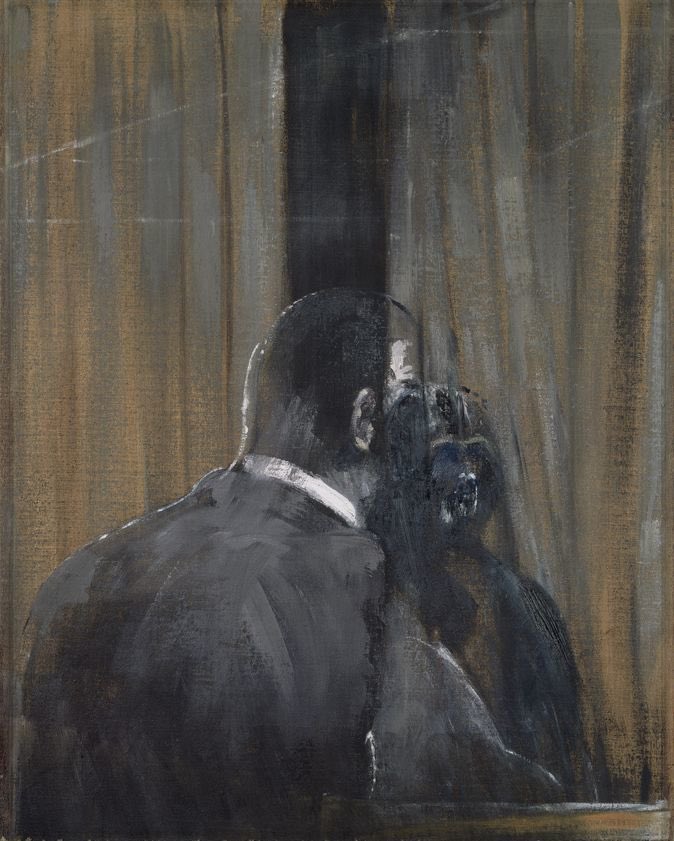
He takes her in his arms.
He wants to say ‘I love you, nothing can hurt you’
but he thinks
this is a lie, so he says in the end
‘you’re dead, nothing can hurt you’
which seems to him
a more promising beginning, more true.
— Louise Glück, A Myth of Devotion

He wants to say ‘I love you, nothing can hurt you’
but he thinks
this is a lie, so he says in the end
‘you’re dead, nothing can hurt you’
which seems to him
a more promising beginning, more true.
— Louise Glück, A Myth of Devotion
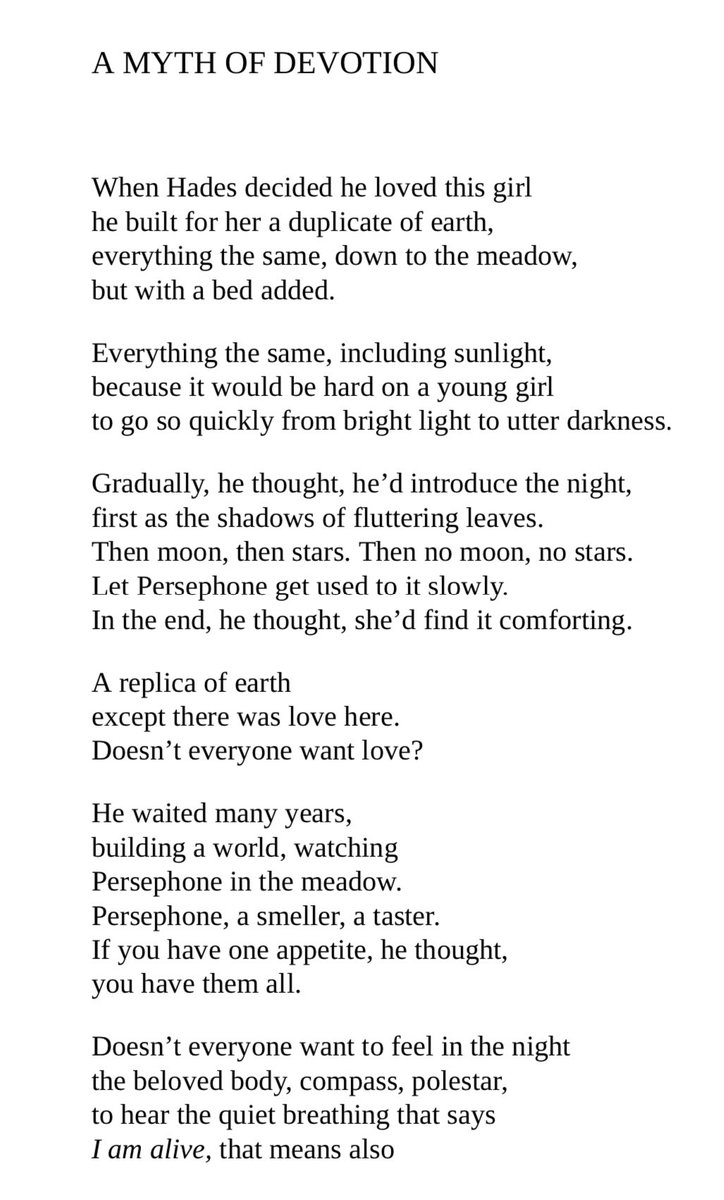
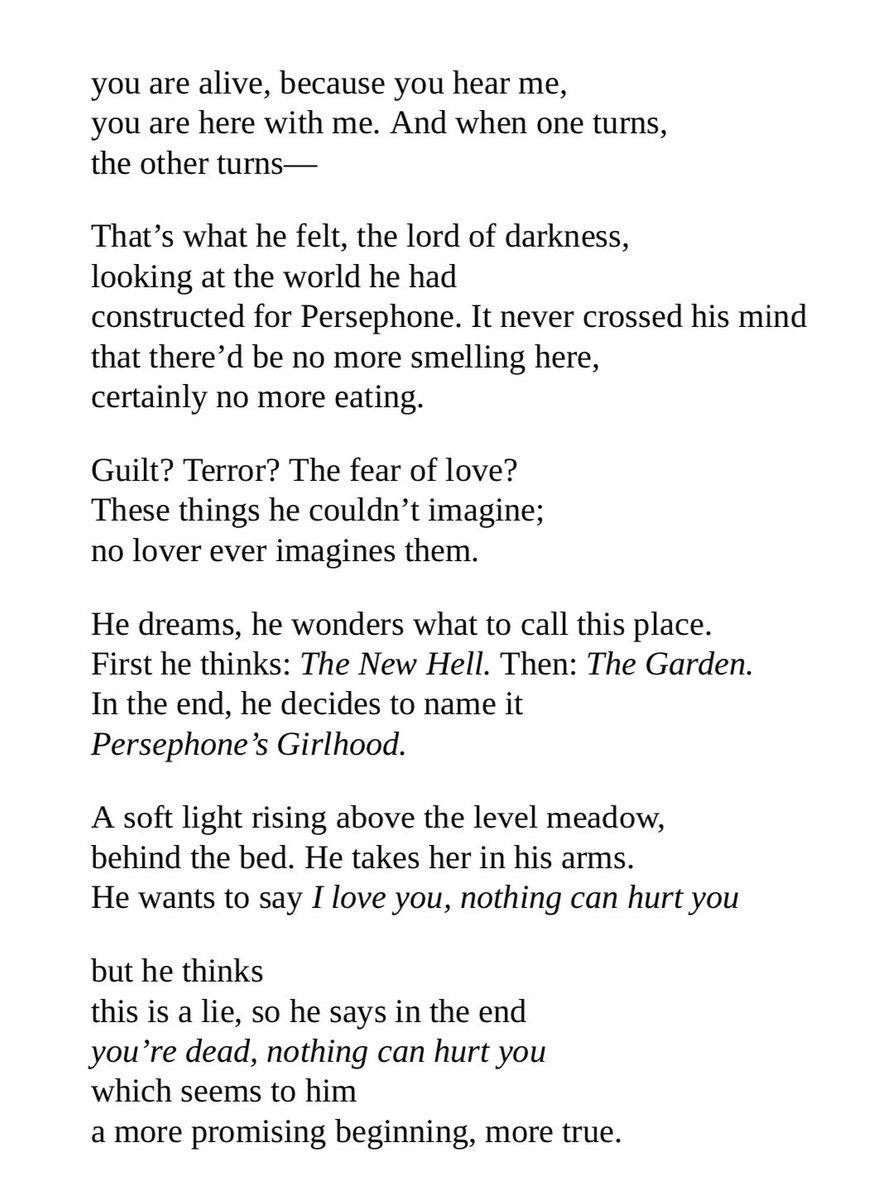
Winter will end, spring will return.
The small pestering breezes
that I so loved, the idiot yellow flowers—
Spring will return, a dream
based on a falsehood:
that the dead return.
[…]
You must ask yourself:
are the flowers real?
— Louise Glück, Persephone the Wanderer



The small pestering breezes
that I so loved, the idiot yellow flowers—
Spring will return, a dream
based on a falsehood:
that the dead return.
[…]
You must ask yourself:
are the flowers real?
— Louise Glück, Persephone the Wanderer
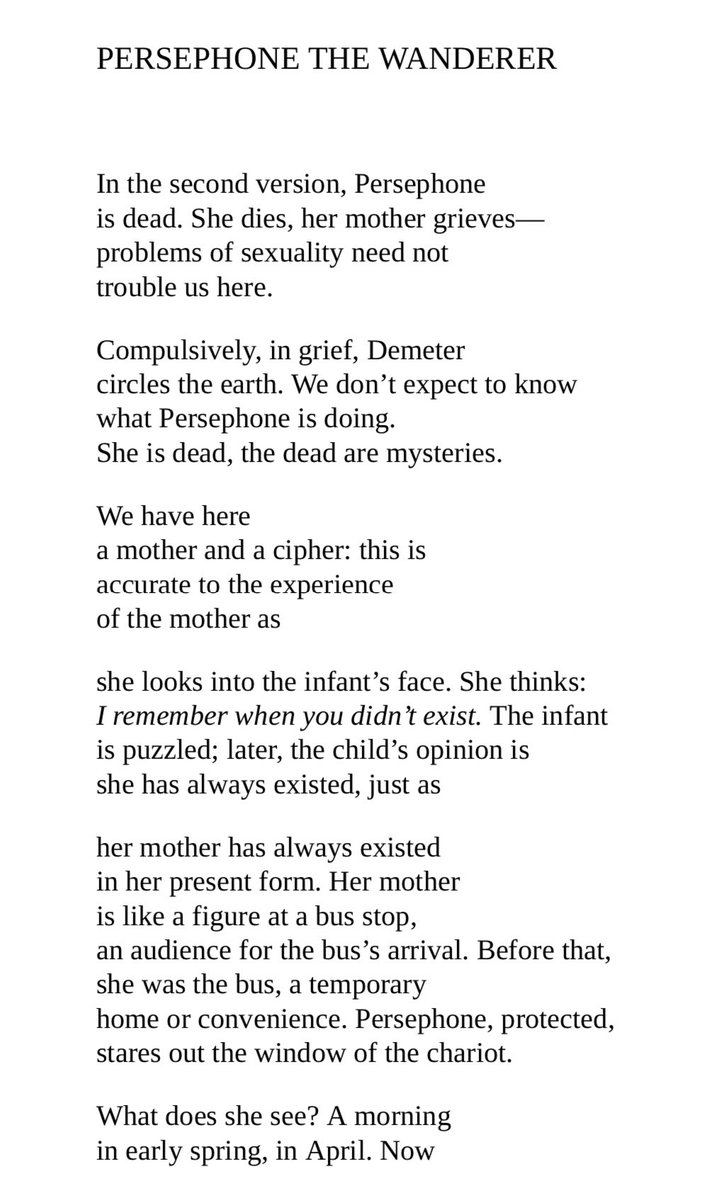
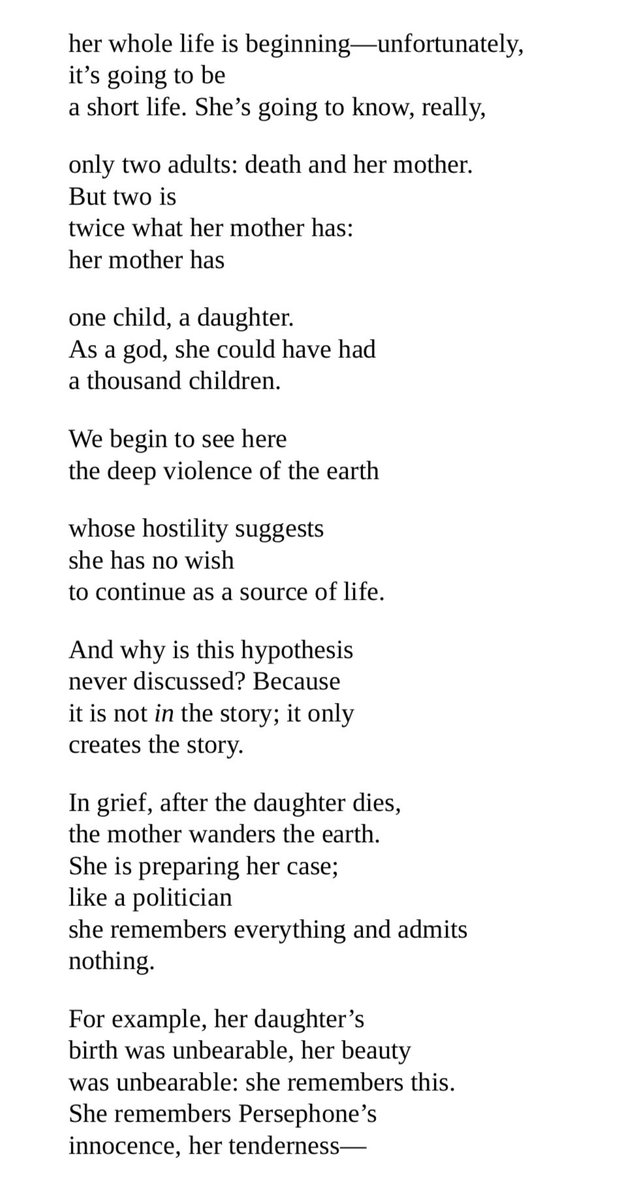
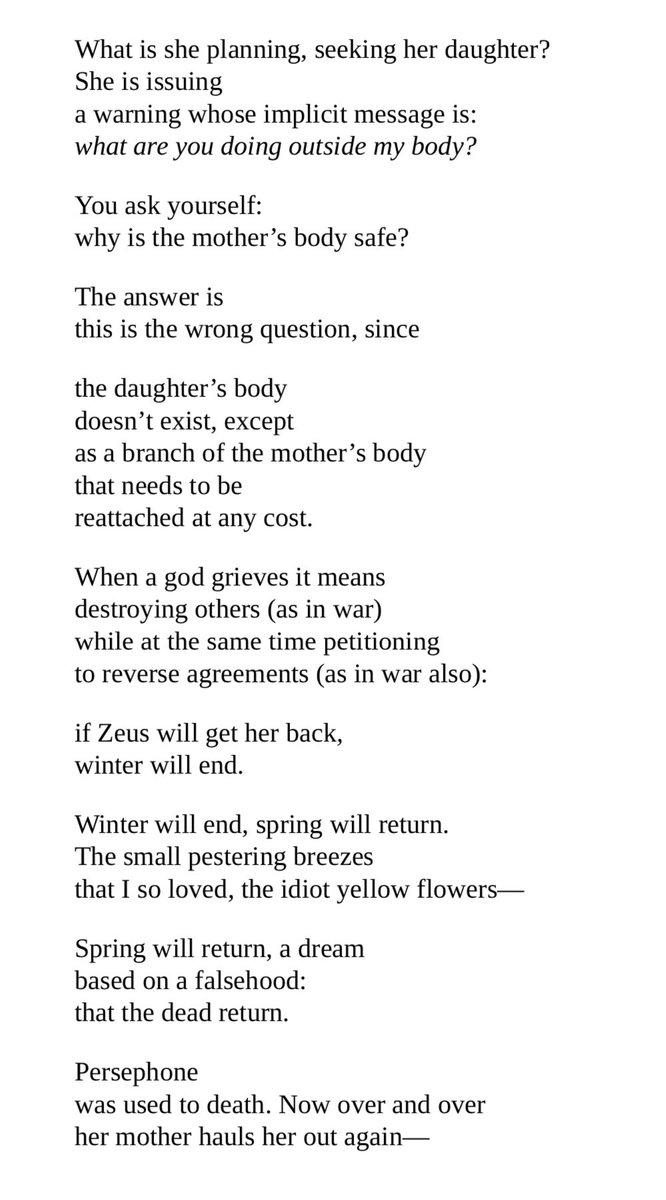
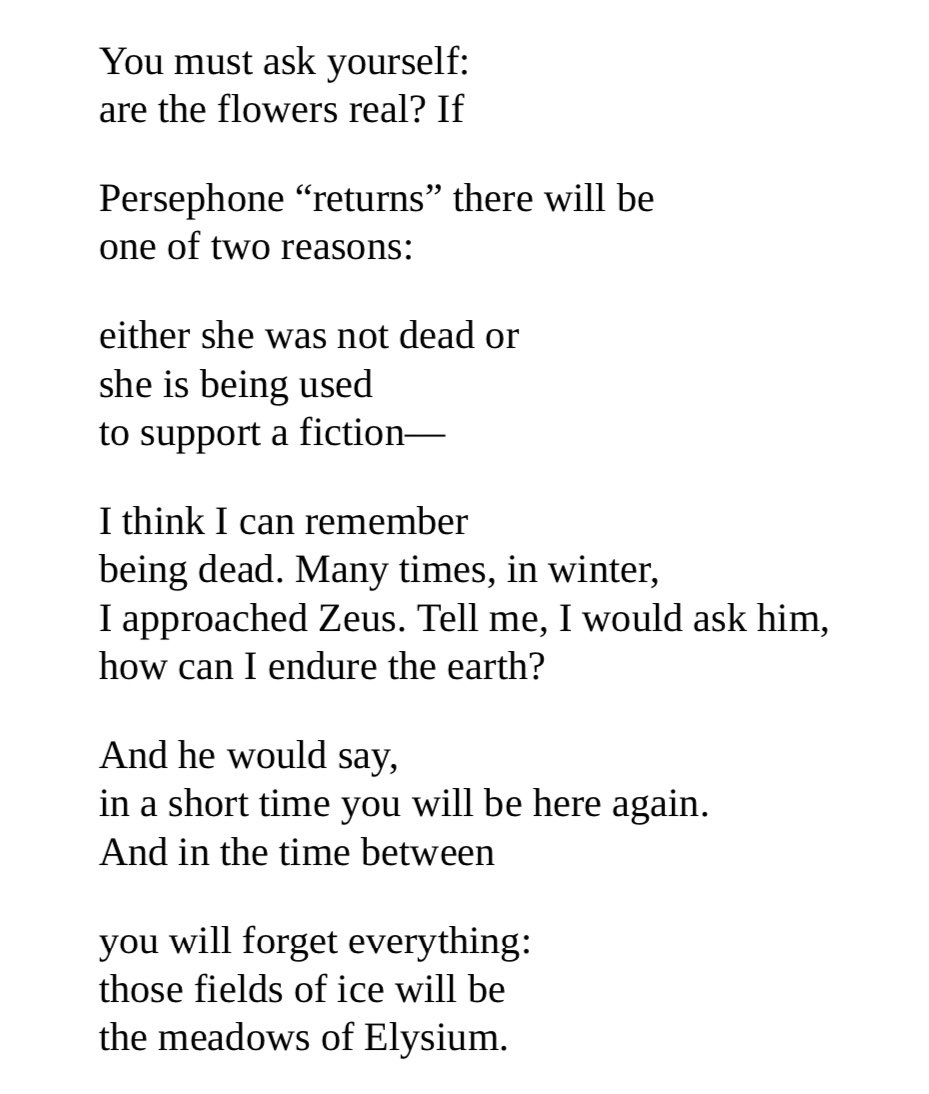
Figure in a Landscape, 1945
Study of a Figure in a Landscape, 1952
Figures in a Mountain Landscape, 1956
Figures in a Landscape, 1956
by Francis Bacon



Study of a Figure in a Landscape, 1952
Figures in a Mountain Landscape, 1956
Figures in a Landscape, 1956
by Francis Bacon
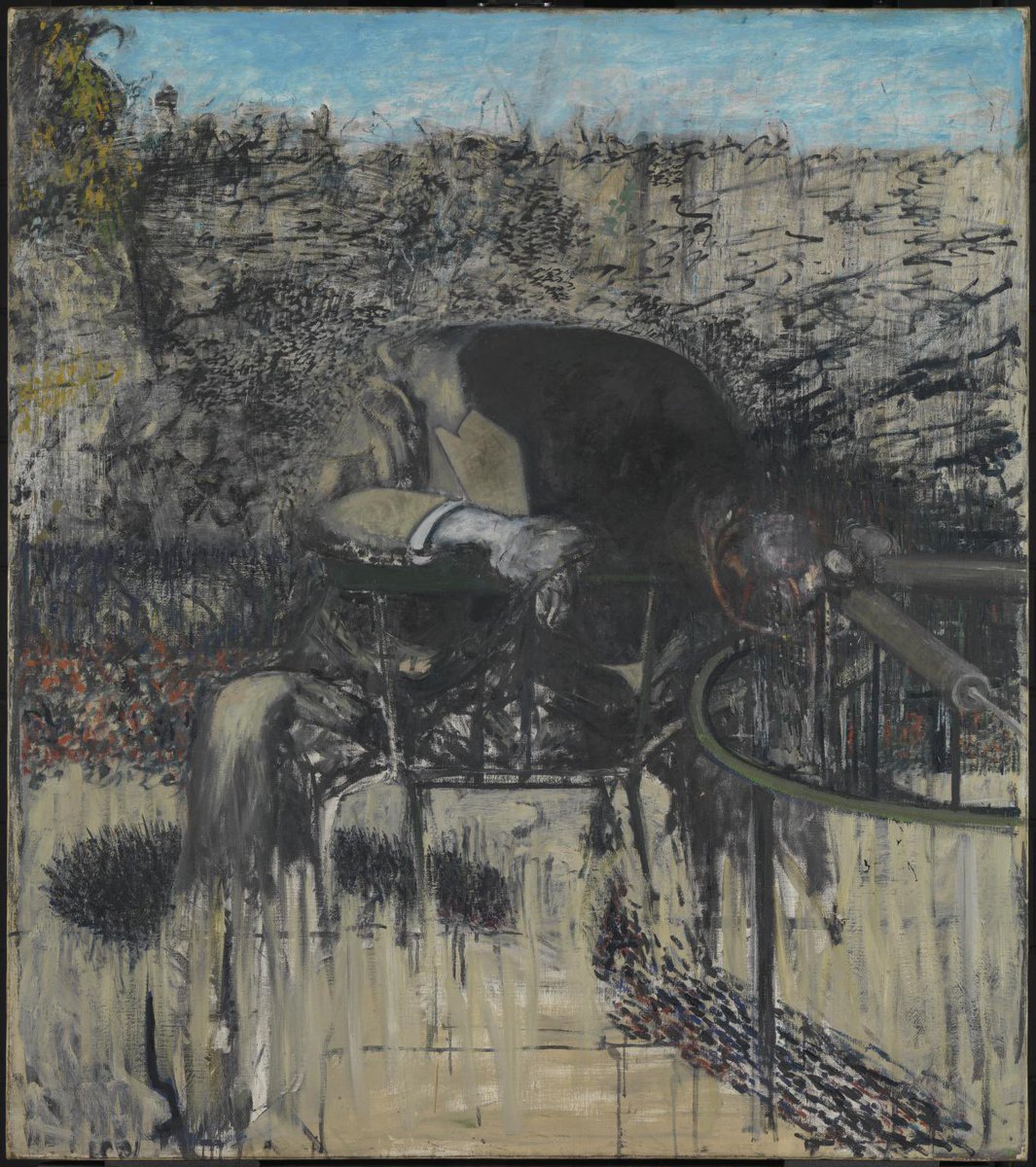
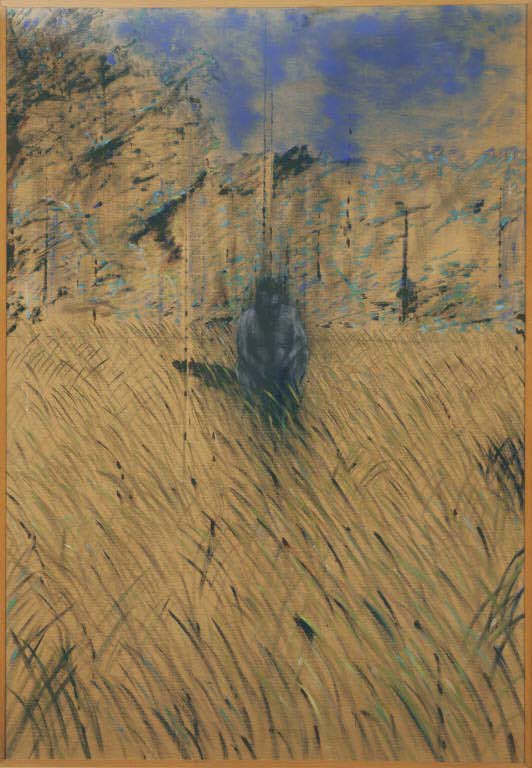
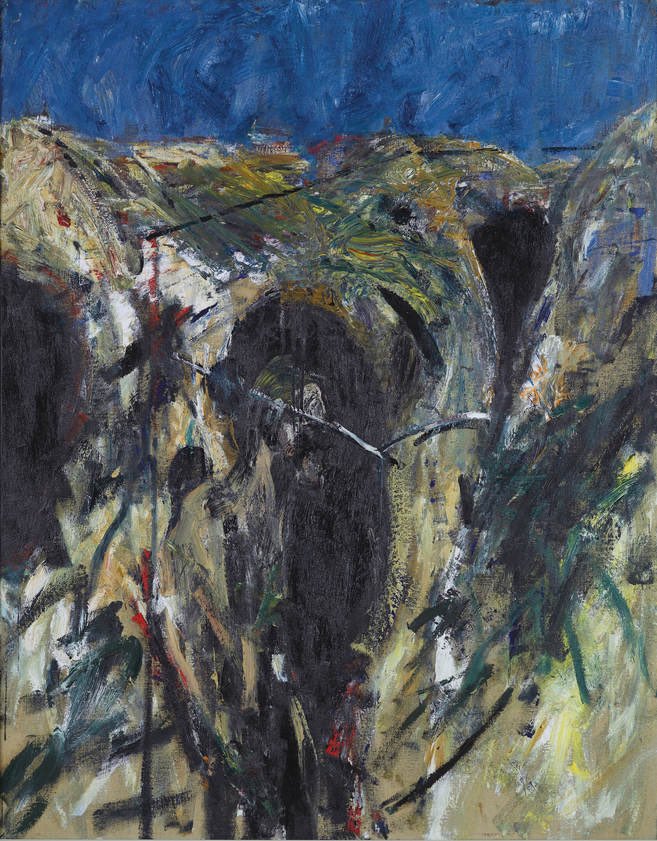
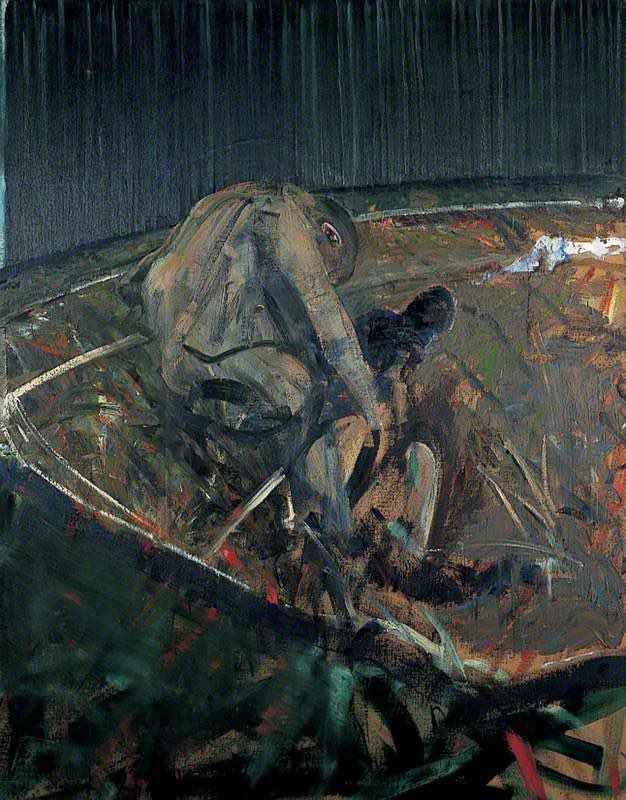
• • •
Missing some Tweet in this thread? You can try to
force a refresh
